#what’s a car crash to an adaptation disaster????
Text
I am of the firm opinion that Book Wicked and Musical Wicked are two separate spheres that should never touch, so the Wicked movie looks to be a certified disaster. So yeah, I’m definitely seeing it in theaters.
#wicked#wicked musical#wicked movie#i am all about the ☕️#what’s a car crash to an adaptation disaster????#they have 5+ hours of extra footage!!!!#oh god#hbo could have done maguire’s book as a miniseries#we could have had it all#not this frankenstein#cristina has an unpopular opinion
4 notes
·
View notes
Text

“Road safety films point to a specific shift in representations of the highway starting in the 1950s and 60s: from Jackson’s odological approach, concerned primarily with the efficient organization of space, to what Paul Virilio calls “dromology,” the science of speed. If odology is about the tension between centripetal and centrifugal highways—between roads that navigated the local landscape and those that created a powerful network that constituted “a disregard of local landscape features” (Jackson, Discovering the Vernacular Landscape 23)—dromology is about the complete collapse of space through speed, what Virilio calls “the negation of space” (149). Along with this technologically driven negation of space comes the negation of the human body, so that “[t]o invent the family automobile is to produce the pile-up on the highway”
Road safety films represented a fissure in the early dream of the perfected highway. The 1964-1965 World’s Fair exhibition of the Futurama II had chosen to ignore the movement from odology to dromology, clinging instead to 1939’s original “Futurama” narrative and its insistence on superhighways as a safer infrastructure for drivers. But the new dromology ditched the landscape altogether, instead aligning speed with the immediate satisfaction of consumer desires. Science fiction author J.G. Ballard observes that
. . . the car crash differs from other disasters in that it involves the most powerfully advertised commercial product of this century, an iconic entity that combines the elements of speed, power, dream and freedom within a highly stylized format that defuses any fears we may have of the inherent dangers of these violent and unstable machines.
(…)
Just five years after the end of the second Futurama exhibition, J.G. Ballard penned The Atrocity Exhibition (1970), a dreamlike and fractured representation of the consequences of this new dromology brought about by auto-mobility. Ballard’s narratives present near-future highways as the ultimate death machine, not just for transgressors of the road-safety code, but for everybody. These highways are realized in the nightmarish qualities of an abstract system Ballard called “Autogeddon.” In The Atrocity Exhibition, the highway is refigured as a network of sex and death. No longer able to retain its appeal as a glorious vision of a streamlined future, the highway has become, by 1970, a gruesome expression of the contradictions inherent in the fetishization of “violent and unstable machines.” The Atrocity Exhibition describes a dromological world in which human existence is experienced as an extended moment: a car crash that never ends but endlessly repeats. In what is perhaps an inevitable culmination of humankind’s adaptation to speed, people and highways are no longer distinguishable: in Ballard’s Autogeddon, the highway has taken on the properties of a biological body—not just the arterial metaphor, but the “skeleton” of the road itself:
Waking: the concrete embankment of a motorway extension. Roadworks, cars drumming two hundred yards below. In the sunlight the seams between the sections are illuminated like the sutures of an exposed skull.
The book iterates through road accidents, dismemberments, and cut-up women’s bodies to create a crash future with distinctly filmic qualities: “Sequence in slow motion: a landscape of highways and embankments, evening light of fading concrete, intercut with images of a young woman’s body” (72). Aside from the troubling gender implications, Ballard’s Autogeddon offers a disturbing vision of a near-future in which human bodies and machines are inextricably connected by the vertiginous speed of the automobile.
(…)
In a novel where space and time are conquered by dromology, the car is secondary to the space in which it exists: the highway system itself. In fact, Ballard suggests, “[t]he ultimate concept car will move so fast, even at rest, as to be invisible” (98). On the highways time stops: “Looking around, I had the impression that all the cars on the highway were stationary, the spinning earth racing beneath them to create an illusion of movement” (196). In this transformation of the highway into a flattened moment out of time, Ballard creates a stylized tableau owing much to the deco-perfect diorama of Geddes’ Futurama.
In Crash he characterizes the architecture of the highway as a kind of perfect mesh of nature and machine: “Along the elegant motion sculpture of the concrete highway the coloured carapaces of the thousands of cars moved like the welcoming centaurs of some Arcadian land” (166). This scene, calling to mind the tiny colored cars racing through Futurama’s idyllic country landscape, is populated with cars reveling in pure speed with an animal-like innocence: “The marker-lines diving and turning formed a maze of white snakes, writhing as they carried the wheels of the cars crossing their backs, as delighted as dolphins” (196).
(…)
The association of sexual desire and automobiles was not new. As early as 1951, Marshall McLuhan had noted that a component of postwar responses to machines reflected an “interfusion of sex and technology” in advertising that went beyond the simple use of attractive women to sell cars (94). On the one hand, women were paraded and displayed with cars in such a way that a car became like a beautiful woman, with its soft interiors and desirable status markers. But, McLuhan argued, cars also stood in for a deeper desire to form an intimate connection with the machines themselves, a desire to become part of the mechanism of modern technology:
It is not a feature created by the ad men, but it seems rather to be born of a hungry curiosity to explore and enlarge the domain of sex by mechanical technique, on one hand, and, on the other, to possess machines in a sexually gratifying way. (The Mechanical Bride 94)
(…)
But the collapsed space of the car crash intrudes on this dream of the perfect machine. McLuhan notes that the fusion of sex and technology that constitutes the mechanical bride is surrounded by “images of hectic speed, mayhem, violence, and sudden death” (98). The irony of desiring to plug into a machine is that desire is not satisfied, but merely displaced:
. . . for those for whom the sex act has come to seem mechanical and merely the meeting and manipulation of body parts, there often remains a hunger which can be called metaphysical but which is not recognized as such, and which seeks satisfaction in physical danger, or sometimes torture, suicide, or murder. (100)
In The Mechanical Bride McLuhan shows that there is a kind of inherent violence in the technological visualization/objectification of a woman’s body, both in our everyday lives and in the less overt but still overwhelmingly present sexist conventions of television and billboard advertising. But in Crash, we find this violence made literal. The victims are women who are physically cut up in automobile accidents in the same way that they are metaphorically cut up in photography and Western art more generally: carefully cropped images of parts of hands, skin, face, leg, or arm. Seagrave, the stunt-driver, fondly imagines film stars being “forced to crash their own stunt-cars” (103), starting with the film star Elizabeth Taylor, about whom he comments gleefully, “I can see those big tits cut up on the dash” (95).
(…)
Perhaps, though, Ballard’s novels are better thought of as a response to the impulses so clearly laid out by McLuhan’s The Mechanical Bride: a world in which cultural narratives are driven by human adaptation to the modern machine and not the other way around. Rather than existing on an axis between moralism and aestheticism, or as examples of “guerilla interventions,” Crash and The Atrocity Exhibition point out the ways in which the very creation of auto-mobility, the infrastructure of car culture itself, creates violence against the human body, echoing Virilio’s claim that “to invent the family automobile is to invent the pile-up on the freeway.” Indeed, recurring images of children, such as Patty, broken by car wrecks suggest a “family dimension” absent in Ballard’s gruesome technological landscapes.”
#ballard#jg ballard#crash#atrocity exhibition#love & napalm#cars#machines#future#highways#road safety#odology#dromology
3 notes
·
View notes
Text
White Noise (2022)
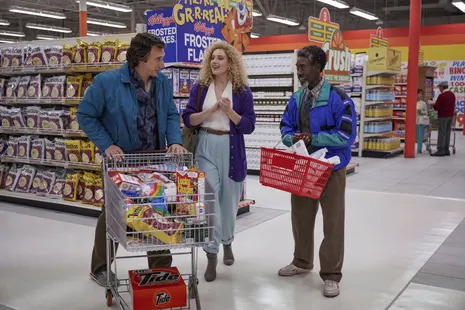
Don DeLillo has a very specific sort of prose style. His pattern of dialogue, the way he notices or draws attention to details, builds a singular vision of the world equally informed by cynicism and detachment. Just reading the opening paragraph of White Noise gives a sense of American post-relevance. An anonymous and identical parade of cars moving past hellish industrial “artwork.” This is a 1980s of prosperity and cultural decay, of arrogance and paranoia. Noah Baumbach took a big risk in adapting this, and managed to thread the needle. It’s densely textured and insane, torqued precisely just beyond the point of reasonableness for every situation. We seek oblivion, through Dylar or a bullet, and long for mere existence in the blandest sense possible. Life is best lived when guiding geriatric people through calisthenics or lecturing on German fascists, the same old same old. Yet existence has a way of throwing curveballs at intervals. A boozing truck driver crashes into a train transporting Nyodene-D and suddenly a community of academics accustomed to watching disaster on the television but never experiencing it themselves have to relocate, clustered on the freeway and offered little guidance by an inept government. Or perhaps the government are complicit, reckon some. Through this wild night Jack Gladney begins to experience what most would call a midlife crisis, but what he knows to be a radical fear of death. This is life writ operatic, tensions and emotions cranked past the dial’s natural endpoint, and yet oddly muted at other points. Perhaps we all just need a German nun to smack some sense into us, put things into perspective vis à vis existence.
It’s rare that a film includes a litmus test for itself. White Noise is without a doubt a film people will either embrace or cast aside, and the dueling monologues regarding Hitler and Elvis capture the essential spirit of the film. The very concept of teaching ‘Advanced Nazism’ is just deeply hilarious and troubling and therefore even more funny. But when Adam Driver as Jack Gladney goes full Kylo Ren, intoning about Hitler’s mommy issues while contorting his body into a human swastika while Don Cheadle’s fellow academic preaches about Elvis in the same light cuts American pop culture to the bone. We all have our idols. Some just want to exact a final solution. This academic pageantry is juxtaposed against an existential crisis in the impending disaster of the Airborne Toxic Event, prolonged to an almost comical extent. We can prattle on forever, but death is nigh.
The LCD Soundsystem musical finale was a brilliant sendoff to this singular work, a celebration of the casual excess of this Food Market.
THE RULES
PICK ONE
Select either HITLER or ELVIS and sip whenever that historical figure is mentioned.
SIP
Someone says ‘forget’ or ‘Dylar’.
Jack adjusts his glasses.
Archival footage.
BIG DRINK
A chapter title appears onscreen.
Characters start watching TV.
#drinking games#white noise#noah baumbach#adam driver#greta gerwig#don cheadle#drama#comedy#satire#don delillo#lcd soundsystem
2 notes
·
View notes
Text
The Importance of Server Monitoring for Optimal Performance and Security
In the vast expanse of the internet, servers silently power our digital experiences. But what happens behind the scenes to ensure a website's stability and security? That's where server monitoring steps in—a silent guardian, working tirelessly to keep the digital realm intact.
UptimeMonster is a game-changing tool dedicated to the smooth operation of your website and server. Picture this - you run an ecommerce business, and unplanned downtimes can mean costly disruptions leading to lost sales, customer dissatisfaction or surprisingly even worse, losing prospects to your competitors who are just a click away. With UptimeMonster overseeing the health of your site, it is like having a guardian angel that prevents such unfortunate incidents from sabotaging your digital operations.
The Digital Backbone: What are Servers?
Imagine servers as the unsung heroes of the internet, akin to a bustling library storing and organizing information. They process requests, retrieve data, and deliver it to your device, making online interactions possible. From streaming your favorite shows to processing e-commerce transactions, servers are the backbone of the digital world.
Why Server Monitoring Matters
Have you ever faced the frustration of a website crashing at the wrong moment? Server monitoring is the superhero swooping in to prevent such disasters. It involves tracking the performance, health, and security of servers in real-time, ensuring they operate optimally.
Real-Time Performance Checks
Think of server monitoring as a watchful guardian, constantly checking vital signs. Real-time performance checks ensure that your website loads quickly, providing a seamless user experience. Slow-loading pages could drive away potential visitors; server monitoring ensures this doesn't happen.
Identifying and Preventing Downtime
Downtime is the arch-nemesis of online businesses. Server monitoring identifies potential issues before they escalate, preventing downtime and ensuring your website remains accessible to users 24/7. It's like having a mechanic fix your car before it breaks down on a deserted road.
Security Beyond Firewalls
While firewalls guard against external threats, server monitoring goes deeper. It keeps a vigilant eye on unusual activities within the server, detecting and thwarting potential internal security breaches. It's the silent sentinel protecting your data from both external and internal threats.
youtube
Server Monitoring Tools: A Comparative Analysis
Choosing the right server monitoring tool is crucial. We'll delve into a comparative analysis of popular tools, weighing their features, ease of use, and effectiveness. Because, just like a craftsman needs the right tools, your server needs the best monitoring solution.
Cost-Effective Solutions for Small Businesses
You don't need a fortune to ensure your server's well-being. We explore budget-friendly server monitoring solutions tailored for small businesses. Because safeguarding your online presence shouldn't break the bank.
Scalability: Growing with Your Server Needs
As your digital presence expands, so do your server requirements. Server monitoring ensures seamless scalability, adapting to the growing demands of your website or application. It's like having a server that grows with you, effortlessly.
User Experience: The Heart of Server Monitoring
At the core of server monitoring is the user experience. Whether it's an e-commerce platform or a blog, a positive user experience relies on a well-maintained server. We uncover how server monitoring directly impacts and enhances the user experience.
Common Misconceptions About Server Monitoring
Dispelling myths is essential for understanding the true value of server monitoring. We tackle common misconceptions that might be holding you back from embracing this essential practice.
The Future of Server Monitoring
What does the future hold for server monitoring? We explore emerging trends and technologies, offering a glimpse into the evolving landscape of digital guardianship.
Conclusion: Your Digital Guardian
In a world where digital interactions shape our daily lives, server monitoring emerges as the unsung hero. As we bid farewell, remember that behind every seamless online experience is a diligently monitored server, ensuring your digital journey remains smooth.
1 note
·
View note
Text
just wrote a story in an hour
03/30/1992 the train number 1408 is flying down the rails when the headlight berns out they return to station is a 5 hour repair job The train leaves the station with a new headlight at 4:32 am slowly picking up speed it leaves as the hours tick by the gage for the batory is going all over the place, but it dose not mater as the light starts to flicker then go out when there is an orange glow smoke starts to fill the cab as the brake lines melt the train speeds along james runs back to stop the cars individult but he slips off and is killed edmind is burned alive the unmained train speeds along with a cargo so toxic one good smell and it can kill you a car so explosive a spark can set it off the train speeds along as the town of Blackwood is evacuated. The train colides into a school bus and it just gets faster and faster a helicopter is spraying water on the berning train as it keeps speeding up. A locomotive starts speeds after it with alex and zack. Zack plans to bourd the train and set off the brakes mainly speeding along the news catches wind of the unfolding disaster “a dermadic atempt to stop train 1408, a locomotive is going to couple on to the rear car and set off the brakes one by one” the train approaches black wood as the locomoive cupples on and sets off the brakes sparks fly down the rail way, alex calls his brother “im sorry what i said, look man your awesome just live like its your last day because one day shit someday it will be, i love you” he hangs up the phone the train speeding to black wood as zack jumps the cars seting off the brakes one by one, the train starts to slow down but they cant make there way in the locomode due to the heat. The train starts to tip “and as you can see it is going to clear this t-OH GOD” the train flys thru house the naberhood shakes as the train crashes thrughe houses the locomodive hits a dinner, and the explosive liquid leaks out flooding the naberhood before lighting the toxic gas spills out black wood was abandend in 1992 after the incident its still too deadly to even go withen 10km of the town the cause of the fire was found to be a broken white leading to the headlight it sparked and lit some insolation. At the in 2054 the town will be safe to enter. At the train station is a plac cimemorating alex and zack for there heroism. The town was slowly taken over by the wildlife that adapted to the gas the train lay where it derailed, in 2022 it was discover that the mechanic that changed the lightbolb was overworked and incorrectly placed it starting the fire disproving the theory back from 1992 the end
1 note
·
View note
Text
Mr. Beast VS. Uwe Boll
Ladies and gentlemen, welcome to the event you never knew you needed in your life: a boxing match between internet sensation Mr. Beast and the auteur of cinematic disasters, Uwe Boll! I'm your sarcastically enthusiastic host, Lowtax, and boy, do we have a treat for you tonight.
In the red corner, we have Mr. Beast, the YouTube juggernaut, master of giving away money and turning philanthropy into a spectator sport. Will his ability to throw cash at his problems translate into a mean right hook? We're about to find out!
And in the blue corner, Uwe Boll, the man who singlehandedly ruined more video game movie adaptations than you can shake a stick at. He's here to prove that, just like his movies, he can punch way above his weight class. Or below it. Honestly, it's hard to tell with him.
And with that, the bell rings, and the match begins!
Round 1:
Mr. Beast comes out swinging, perhaps hoping to impress the crowd with a few flashy moves, but Uwe Boll effortlessly dodges his punches with the grace of a German shepherd on roller skates. The crowd gasps, unsure whether to be impressed or horrified by this bizarre display.
Lowtax (commenting): Wow, folks, it's like watching two drunks try to fight their own shadows. If only they put as much effort into their respective careers as they're putting into this fight, am I right?
Round 2:
Boll, seemingly done with the theatrics, lands a solid punch to Mr. Beast's jaw. The YouTube star staggers back, clearly feeling the impact of that German-engineered fist. Boll, sensing weakness, moves in for the kill, pummeling Mr. Beast with a series of devastating blows.
Lowtax (commenting): Oh, the humanity! It's like watching a car crash in slow motion, if the car was made of money and bad movie adaptations. Who knew Uwe Boll had such a killer instinct?
Round 3:
Mr. Beast, now battered and bruised, attempts to rally, but it's clear he's outmatched. Boll delivers the final knockout blow, sending Mr. Beast crashing to the canvas. The crowd erupts in cheers, their bloodlust sated for the moment.
Lowtax (commenting): Well, folks, it seems Mr. Beast has met his match in the form of an angry German filmmaker. Who would've thought? Maybe next time, he'll stick to giving away cars and leave the fighting to the professionals.
But just as Lowtax finishes his commentary, Uwe Boll, unsatisfied with his victory, turns his attention to the sarcastic announcer. He leaps from the ring and begins pummeling Lowtax, his fists a blur of misplaced aggression.
Lowtax (groaning in pain): Wait, what? No, not me, you maniac! I'm just the sarcastic commentator!
The crowd, now whipped into a frenzy, continues to cheer for Uwe Boll as he wails on both Mr. Beast and Lowtax. Bloodied and beaten, the pair can only whimper in pain as they're subjected to the wrath of a man who's been ridiculed one too many times.
And with that, the match comes to an end – a brutal, yet fittingly absurd conclusion to a battle between three of the internet's most bizarre personalities. The crowd roars its approval as Uwe Boll stands triumphant over the defeated Mr. Beast and Lowtax, basking in the glory of a victory that, much like his film career, will likely be forgotten by the time the next spectacle comes along.
0 notes
Note
Me again. Just curious. Which animated show do you think would have the biggest car crash of a live action adaptation? Part of me wants to see a live action Infinity Train just to see what it’d be like. Even if it does turn out bad. What about you? I’m just curious.
Yeah that'd probably be a trainwreck (pun 100% intended), though at least it'd have the positive of potentially continuing the story of that show. I think Amphibia would be a pretty massive disaster if they tried that with it, literally 3 of the main recurring characters are humans so they'd either have to do 'realistic' CGI for all the frogs or try and recreate them in costumes.
0 notes
Text
Fun facts about Laura Barton/the Barton family! They were originally introduced to the Marvel Ultimates canon in 2003 (issue #9 of "The Ultimates"), in a conversation between Tony Stark and Natasha Romanov:
Nat - "A healthy respect for death is no bad thing, Mister Stark. You see Hawkeye over there? Did you know that he telephones his girlfriend and says goodbye to his children before every single mission just in case it is his last?"
Tony - "A tad morbid, don't you think?"
Nat - "No. Because one day it will be his last, comrade."
His children in the comics were Callum, Lewis, and Nicole. Nicole was named after Nick Fury -- who also happened to be her godfather. She was only a newborn when she was introduced, while Callum (the eldest) was likely below the age of 8. The MCU adapted the children's names to be Cooper, Lila, and Nathaniel, with Nathaniel being named after her Aunt Natasha.
The Bartons had a modest house in the suburbs, though with Clint being a working spy/assassin, Nick Fury stationed security personnel to protect them in case of an attack. It seemed as if the five-person family were well acquainted with their neighbors -- and invited the other members of the Ultimates team (such as Steve Rogers, Janet Pym, and likely Nick Fury and Natasha Romanov) over for dinners. Additionally, Clint baked chocolate chip cookies on one occasion, and reveled in the tradition of making coffee when it was 'bedtime' for the kids.
(Spoilers, if you ever want to read these comics)
Though they were mentioned numerous times within the "Homeland Security" and "Gods and Monsters" runs, the beginning of the "Grand Theft America" (Ultimates 2, issue #7) arc was where we actually saw them for the first -- and last -- time. Interestingly enough, Natasha Romanov was directly responsible for their dark fates -- as in, she ends up killing all four members in front of Clint. Natasha goes as far as shooting Callum in the head while he was hiding in Clint's arms, before kidnapping Clint and dumping him in a room to be tortured for information. In retribution, Clint ends up hunting her down and killing her.
What I find interesting is that the family that Clint Barton created for himself has only appeared in 3 separate instances (to my knowledge, anyways) -- the Ultimates comics, the main MCU universe, and the MCU's "What If?" -- and in all cases they end up dying, causing Clint's already faulty mental health to spiral into full-on suicidal ideation. It's only in the MCU that he's able to witness his family return to him in any capacity.
Anyone who cares about Clint Barton as a character knows that giving him a family was not a popular choice -- especially given how 'a car crash of a love-life' is a somewhat defining character trait for the original, 616-comics version of the character. I have to say though, knowing how screwed up his childhood was -- and how rocky the relationship with his brother is -- I find myself glad theres at least a few universes out there where he's able to make it work... even if the stability and happiness is doomed to fail (...and even if it's not with Bobbi or Natasha or even Jessica Drew as his wife).
Does it make Clint less of a disaster human? Maybe. But idk, a lot of my favorite characters are disaster humans, so I just love whenever any iteration of them scrap together a sense of peace and happiness for themselves. I'm just happy he's happy I guess.
What's more, I appreciate the fact that in at least one of those universes, Clint grieves heavily for a lost family, but eventually gets a second chance to care for them -- and be cared for in return. (Also, the narrative contrast of Natasha killing Clint's family in the comics and Natasha becoming a part of Clint's family in the MCU is just awesome to me. It's so ripe with potential, you know?). And say what you want about Renner, but he does an excellent job of just glowing with pride and joy whenever Clint's around his kids and his wife.
#hawkeye#hawkeye show#hawkeye comics#clint barton#laura barton#barton family#lore#ultimate comics#nate barton#nick fury#natasha romanoff
26 notes
·
View notes
Text
Willow
Modern Reincarnation AU. Merlin and Lancelot go through a photo album. ~1700 words. Lancelot/Merlin. No warnings apply. (Mention of car wreck that killed Lancelot in a past life.)
A late birthday gift for Mod @little-ligi, because I couldn't have made this fest work without her. You're the best Ligi 💗
--
There’s no need to print photographs anymore. It’s easy enough to look at a screen and and flip through thousands, hundreds of thousands of images. But there has always been something special about choosing individual moments, perfect snapshots, and cataloging them into a book whose pages he can flip through. Merlin has been alive for over 1500 years. Books are one of the most familiar things he knows. One of the only things that hasn’t changed much in 1500 years.
People changed, clothes changed, transport changed, but not books. Those had remained nearly the same. You open the front cover and you look at what’s inside, just like always.
After 1500 years of adaptations, it was nice for this one thing to remain the same.
So when Lancelot hands him the photo album, Merlin is about to break his own face in half with how much he smiles at it. It’s a good thing, no a great thing, that Lancelot has done. The photo album is a deep forest green, the cover embossed with “The Book of Us.” In silver letters that Merlin traces with his fingers.
“What’s the occasion?” He asked, almost unable to take his eyes off of the book.
“Today is the day we met in this life, 10 years ago. I thought it might be nice.” Lancelot’s voice is so sincere, that Merlin has to look at him, has to look at the face of the man that he has loved without end or conditions for 1500 years. Tears prick his eyes because of all the love he see’s in Lancelot’s.
“I love you.” Merlin’s voice is soft when he finally finds it, and Lancelot crushes him to his broad chest, giving him a stability Merlin didn’t even know he needed until he had it.
“And I you,” Lancelot kissed Merlin’s cheek and Merlin’s fingers itched to open the photo album, but he didn’t want to leave the circle of Lancelot’s arms. He’s content to just listen to soft sound of Lancelot’s breaths, feel the pounding of his heart against his chest.
It’s Lancelot who finally breaks the silence. “Would you like to see the photos, my love?” His voice is soft and nonjudgemental. It’s obvious to Merlin that either a yes or a no would be acceptable.
“Yeah,” Merlin finally says, composing himself to pull away and walk with Lancelot to the couch.
They sit and Lancelot waits patiently for Merlin to feel ready to open the book.
The first few pages cover the span of over a year, with so few pictures taken before Lancelot knew him, before he remembered. Several of them are pulled from Instagram, captions included. There’s one of an empty seat and a drained coffee cup, and the caption just reads “I think I’ve met the man of my dreams.” It’s from their first coffee date, Lancelot’s post-date instagram update. Merlin laughed aloud, almost having forgotten it. The next is a candid shot of Merlin. They’d taken a weekend holiday a few months into dating and gone for a hike. The sun was setting behind Merlin, blurring out his features, but the silhouette was so obviously him.
The next was one of Lancelot cooking breakfast, looking over his shoulder to smile curiously at the camera.
Then the first selfie they’d ever taken together, complete with Lancelot pressing a kiss to Merlin’s cheek.
The photographs become more numerous, after that. Some of them and all their friends. There’s the photoset from Morgana’s birthday party (She’d rented a photo booth “because why they hell shouldn’t I spend Uther’s money on bullshit?”) There’s the Christmas photos for the dinner they always throw at Merlin’s because Lancelot doesn’t have any living family to go home to. Arthur and Morgana pop by when Uther becomes insufferable. Gwen and Elyan bring their father by to say hi. Leon stops by with gifts on his way to Mithian’s parent’s house. All these silly little moments caught on camera and made eternal, printed and carefully organized.
There’s the set they took at their third anniversary, a gift from Gwen and Arthur (who had recently gotten their heads out of unsavory places and started dating). There’s the picture of he and Gwaine standing side be side, smiling like old friends despite having just met twenty minutes ago. Merlin has a bruise forming on his cheek, but he’d insisted Lancelot take picture, to commemorate. “It’s not everyday I get in a bar fight, my love. Humor me.” And Lancelot always did.
There’s the terrible sledding disaster of 2015, where Merlin had crashed straight into a tree, and had been having too much fun to stop it with his magic. This is a still from a video, shortly before the actual disaster occurred. By the time the disaster was eminent Lancelot was no longer filming.
There’s the pictures he and Lancelot used to sneak of each other, just to have. Lancelot watching tellie. Merlin having a nap on the couch. Lancelot unclogging the sink. Merlin folding laundry. There was no rhyme or reason, then, for why they took the photos. It was a fun phase, each feeling challenged to take the most mundane pictures, always followed by a faked whining or griping.
There’s the picture of them from two years ago, in tailored suits, surrounded by friends, making their vows, followed by a series of all their friends dancing. A professional photographer had taken these photos, but Merlin always preferred the less polished pictures he and Lancelot took themselves that day.
Like the one Merlin had taken of Lancelot after he’d shoved cake in his face. Or Gwen’s candid picture of them gazing at each other like the biggest idiots in love.
Merlin doesn’t know when he started to cry, but he feels a tear roll down his face only when Lancelot pushes it away.
“I hope these are happy.” Lancelot puts his arm around him and Merlin nuzzles his shoulder. It’s enough, right now, to feel his warmth and smell his soap and just be near him. It’s grounding in a way only Lancelot ever was. The years with Lancelot, and there always seemed to be so many fewer of those than years without him, always made him feel the most alive. The most loved. The memories of Lancelot were good, but they didn’t sustain him, not like this would.
“Come here.” Merlins said, wiping his face and standing suddenly. He takes Lancelot’s hand and leads him out to the car.
“Where are we going?” He asked as they buckled the seat belts, but Merlin just shook his head.
“I want to show you something.”
—
The self storage place they pull up to is one of the last things Lancelot expects.
“Come on.” Merlin gets out and Lancelot dutifully follows, just like always. He lets Merlin take his hand again and watches as he pulls out a key ring that Lancelot’s never seen before and flips through them.
‘I put everything away, every time I meet one of you.” Merlin explains. “I used to have to keep the houses, to keep the things, but these are more secure.” He finally finds the key he needs as they stop outside a storage unit. “This one is from when we lived in the 1960s. Found you in Wales, then, of all places.” He smiled wanly. “We had 10 years together before you died in 1968. Car wreck.”
Lancelot only ever remembers bits of pieces of his past lives, normally only the good bits. “You weren’t with me, I presume?”
Merlin laughed as he wrenched the storage room door open. “You wouldn’t let me.”
“Is that why you never let me ride in a car without you now?”
“Part of it. I also just don’t like to be away from you.” Merlin flicked a light on and Lancelot was surprised by the sheer volume of things that existed in the room. “This was all of your things. I usually give myself about a year to wallow before I pack it away. If it’s here I never have to forget it, but I can still come and see it, if I need to.” He drags Lancelot to the back. On a wire rack there are plastic containers that looks like they’ve been taped shut. Merlin mutters a quick spell to remove the taping and then digs through the box. There are books, folders, papers, but then Merlin pulls out a photo album.
“I want you to see this. Because… I don’t know. It feels important.” Merlin is a very very old man, but he still doesn’t always have all the answers. Sometimes he just has to trust his gut and hope for the best.
He takes the album gently. It doesn’t smell stale the way old books usually do, most likely due to Merlin’s magic, but he flips it open anyway, without question. The first picture is of him and Merlin, a different him, but the same Merlin, Merlin’s arm is slung over him and they’re posing much more like a happy couple than a pair of friends. “Who took this?” He asked, tracing the lines of Merlin’s face. He looks so much older here than the Merlin he knows.
“Elyan. He liked photography. Took well to most of the Arts that life, actually.” Merlin smile and flipped a few pages to show Lancelot a picture of Elyan with a painting. “Abstraction was sort of the thing, then. He does a good job of it.”
“I don’t know anything about art, but it’s very compelling.” Even in the dreamy old photo, which was saying quite a lot.
“I brought it, a few years after he died. It’s in one of the other units.”
“How many of these do you have?” Lancelot asked, turning the page and almost laughing aloud at the image of Gwaine holding Arthur in a headlock. The two of them never changed, apparently.
“Just a couple. There are quite a lot of units in each building.”
“You own this building?”
“I’ve been alive for 1500 years, my love.” Merlin kisses his cheek and Lancelot closes the album. “I have a lot of stuff.”
“We’re taking this with us.”
“That was always the intent.” Merlin closes the box and spells the tape back into place. “That was a gift from you, too, actually, birthday present.”
“I’m predictable.”
Merlin laughed and wrapped an arm around Lancelot, tilting his head up to kiss his forehead. “You’re sentimental, and I wouldn’t have it any other way.”
He pulled Merlin’s head back down to kiss hims squarely on the lips, making Merlin finally pause for the first time since they’d gotten in the car. “Neither would I.”
#mercelot#merlance#minimercelotweek2021#day 5: gift#I was gonna write a fill for Thursday based on stuff I knew you liked but yesterday was a wash for writing#but maybe I'll get to it before the end of mercelot week anyway 👀#mmw2021fill
27 notes
·
View notes
Text
@honeybeelullaby tagged me on an “infodump about your interests” meme!
My interest is a bit more ghoulish than most but fuck it!
I have an encyclopaedic knowledge of plane crashes. My final essay for my degree module was supposed to be about monolingual vs multilingual workplaces, and I turned that into a whole thing on plane crashes.
It’s the factors involved that fascinate me. Rarely is an accident caused by a single thing. It’s a chain of events, little slip-ups and oversights that by themselves are unlikely to cause major problems. On occasion, these chain links are forged decades prior to the accident.
Take the 1996 midair collision of a Saudi 747 and a Kazakh Il-76 over Charkhi Dadri in India. On the face of it, a simple case of pilot error — the Illyushin pilots descended below their assigned altitude and strayed into the Boeing’s path. What’s really interesting is why that happened.
For starters, the airport at New Delhi did not have secondary surveillance radar. Secondary radar communicates with the planes’ transponders, allowing the air traffic controller to see the speed, altitude, and identification of each blip. Primary radar, however, is simply dots on a screen. The controller must place tracking pins on each dot to keep track of who’s who and rely on the pilots for fast and accurate reporting of their altitude, and has no way of knowing if a plane deviates from its assigned altitude.
Another issue at New Delhi was the sheer number of flights using the same corridors - routes in and out of the airspace. At most major airports, departing planes travel along one corridor and arrivals another. At New Delhi, all civilian flights travelled the same corridor. Think of it like all cars using the same side of a motorway to leave the other side free for military vehicles. If that sounds dangerous to you, well, it is.
Still, planes generally came and went from New Delhi without issue, thanks to the highly professional ATC teams in charge of keeping the skies in order. So how did the Kazakh flight end up at the wrong altitude?
The captain was highly experienced, with 9200 hours under his belt, only a few hundred less than the Saudi captain. But where he got those hours of experience matters.
Kazakhstan was only 5 years into its independence at the time of the accident. The pilots, like their plane, had come of age under Soviet flight regulations which were considerably different from Western regulations.
Where the Western world demanded a high standard of English (Aviation English being the industry-wide language), the Soviets did not. For the Kazakh pilots, this left them with only one man in the cockpit able to understand the air traffic controller, the radio operator. This is a position that simply does not exist in Western manufactured aircraft. It’s a matter of design philosophy. Western aircraft were built specifically for the civilian market, and Soviet aircraft were largely adapted from military designs in which a separate radio operator’s position is the norm.
For the crew of the Kazakh flight, this resulted in a translation delay between radioman and pilot, and a radioman who did not have his own instrumentation and thus had to either peer over the pilots’ shoulders or request updates. In theory, it’s doable. In reality, no member of the Il-76’s crew had the entire picture of what was happening.
Another disparity between Western and Soviet flight rules was what measurements were used. New Delhi’s controllers were giving the assigned altitudes and distances in feet, and the radio operator was having to convert to metres. The inevitable confusion caused by this was a frequent matter of complaint for New Delhi’s operators when dealing with flights originating in former Soviet states. Soviet pilots would also rarely repeat back instructions — standard among Western pilots to ensure correct understanding for both pilot and controller — instead simply replying “roger” and switching their radios off.
And the final issue caused by Soviet flight regulations? Crew resource management. An operational technique that grew out of the 1977 Tenerife disaster, CRM training encourages cockpit cohesion and an atmosphere where the captain listens to their subordinates, and subordinates feel empowered to correct a captain’s mistakes. It’s a primary factor in why air disasters have become increasingly rare since Tenerife. Look at any accident report since its inception and chances are, you’ll find a recommendation that the airline(s) involved need to improve their CRM training.
For Soviet pilots, CRM training was nonexistent. In the chaos after the Soviet split, when airlines were disintegrating and changing hands and money was tight, few took up the challenge of providing CRM training to their crews. This was arguably a result of Soviet attitudes towards aviation safety, in which little, if anything, was learned from previous accidents — which were generally seen as an inevitable part of flying. Add in the suppression of information surrounding accidents with state operated airlines such as Aeroflot, and you start to see why Soviet aircraft and aircrews were considerably more dangerous to fly with than their Western counterparts.
So, what did all this mean for the crew of KZA1907?
ATC cleared the inbound Kazakh flight to descent to 15,000 ft. Coming from the opposite direction, the departing Saudi flight was cleared to climb 14,000 ft. About 8 minutes after the transmission, KZA1907 reported that it had reached its altitude. In fact, they were at 14,500 ft and still descending. This was later determined to be a result of poor communication among the crew.
As was standard, the ATC operator reported the oncoming traffic, warning the Kazakh pilots that a Saudi 747 was about 8 nautical miles ahead and, so he thought, a safe 1000ft below, and asked them to report when it was in sight. The radio operator’s reply of “now looking 1907” was the last anyone heard of the Kazakh flight.
Rather than the level flight at 15,000 ft that he’s reported to ATC, the radioman noticed at last that the plane was at 14,000 and slowly descending. Ironically, had he not noticed, the two planes might have just barely missed each other. Instead, the captain pushed forward on the throttles to climb to the correct altitude. Moments later, the tail of the Illyushin clipped the left wing of the Boeing, sending both plummeting to the ground and killing all 349 people aboard both flights. The deadliest midair collision in history.
12 notes
·
View notes
Text
Jump the Fence Part Two: Ghost Out Of His Grave
chapter two: ghost in the world
summary: Benrey and Gordon adapt to living together. Some days are better than others.
notes: series title from “jump the fence” by mother mother. this part and the chapters within it are named after “ghosting” by mother mother.
PREVIOUSLY: gordon woke up in his apartment after leaving chuck e cheese only to find the rest of the science team has spawned as well. and then benrey showed up on his couch. gordon let benrey stay with with, stopped him from leaving in the middle of the night, and now they're sorta trying to be friends!
IN THIS EPISODE: they go to target again
AO3 link
As soon as they step inside, Gordon remembers why he’d been putting off getting Benrey stuff. The first thing they do is ask to sit in the cart after watching a little kid get in, and as soon as Gordon explains that it’s not made for grown men (or whatever Benrey is) they try to climb into the main part of the cart.
He lets them push it, only for Benrey to nearly crash into a display within ten seconds.
“You are a disaster waiting to happen,” Gordon grumbles, grabbing the cart. “No, you’re a disaster actively happening.”
Benrey just gives him a sharp toothed grin.
“Okay. We’re here for clothing, right? Let’s just - Benrey!” They’ve already wandered off, into the makeup section of all things, holding up a tube of blue lip gloss.
“Says it’s candy flavoured,” Benrey informs Gordon as he maneuvers the cart through the narrow aisles.
“I’m not buying you that,” Gordon says.
“Aw, why not? Don’t want me to look prettier than you?”
Is Gordon imagining things, or did Benrey just imply he’s pretty?
He shakes his head. “We’re here for clothes.”
“It’s like, $5.” Benrey pouts.
“I’m not made of money, dude.” Gordon pinches the bridge of his nose. Yeah, okay, he has a shit ton of money all of a sudden. But he also doesn’t have a job, so he’s not gonna blow all that money on whatever random shit Benrey wants. “Put it back.”
They grumble, but when Gordon’s managed to get the cart back out into the main aisle and Benrey’s next to him again, the lipgloss is gone.
Gordon doesn’t let Benrey out of his sight as he leads them to the Men’s section. “Don’t go too crazy. You can get like…five of each thing. Yeah, that seems like a good number.” Benrey huffs and rolls their eyes, but starts looking through the shirts, carefully considering each of them.
“What’s with the...the dudes?” he asks, holding up a shirt with Invader Zim characters.
“It’s from a cartoon,” Gordon says. “Have you never seen Invader Zim?”
Benrey puts the shirt back. “Uh. No.”
“Damn, I thought that would’ve been something you liked.” He glances over the other shirts, with an assortment of familiar characters. “What about this one? You know this guy?” he asks, pointing at a shirt with Spongebob on it. Benrey shakes his head. “You’ve never seen Spongebob? I thought that’d definitely be something you were into.”
“I know Spongebob,” Benrey says, grabbing the shirt to get a better look. “Didn’t recognize him all - crisp.”
“Crisp?”
“Yeah, y’know. He’s always like...lil fuzzy dude.”
“What the fuck are you talking about? What version of Spongebob were you watching?” It’s incredible how Benrey can turn anything into an argument, just by saying whatever bizarre thoughts pop into his head.
“Spongebob! The little, the cartridge was like, green and white and orange, that’s how I could tell it apart from the others…” He’s gesturing with his hands, like he’s holding something. Like…
“Are - did you watch Spongebob on a fucking Gameboy Advance?”
“Yeah!” Benrey says, snapping their fingers with a grin. “Had some others, too. Shrek was the best.”
“They have Shrek on the - nevermind, that’s not important.” Gordon leans back against the cart. “What kind of weird ass childhood did you have that you grew up watching Spongebob on a Gameboy Advance?”
Benrey’s face drops. “A shitty one,” he mutters, turning back to the shirts.
Gordon winces, leaning back against the cart. Right. Bad question, Gordon.
He’s quiet as Benrey finishes picking out his clothing, and doesn’t say anything when it’s a bit more than he’d suggested. He doesn’t comment on how Benrey keeps blinking, shutting his eyes harder than should be necessary.
Should he apologize? Would that make things worse? It’s probably a conversation better suited for when they’re home. Or maybe Gordon’s just a coward.
Either way, Benrey seems done, so Gordon leads him over to the checkout. There’s only a couple cashiers available, with long lines on both, so Gordon grabs a magazine to look over, Benrey peering over his shoulder.
It’s one of the weirdo conspiracy ones, because those are always at least mildly entertaining. It’s mostly the usual kind of stuff - some random celebrity secretly died, this other celebrity secretly didn’t - but tucked off to the side he finds one thing that really piques his interest.
“Experimental Lab Blown Up By U.S. Government?” is the headline, and it seems to be accusing Black Mesa of “unethical and dangerous science” and claiming the government had it blown up to “protect citizens”.
“Benrey,” he says, about to point it out to him, only to realize Benrey has completely vanished. “Shit,” he mutters, pulling the cart out of line. Fuck. Where the hell did they go?
Gordon retraces the route they’d taken, heading back to the Men’s section. There - by the fitting room, he thinks he sees a person in a gray beanie duck past an employee.
She seems pretty distracted, luckily. Gordon abandons the cart, darting past her. “Benrey?” he calls out, poking his head into the empty stalls.
There’s only one closed door, all the way in the back. Fuck, Gordon hopes he didn’t just chase down a random person. He knocks on the door. “Benrey? You in there?”
“No,” Benrey says.
Gordon sighs. “Benrey, c’mon, just open the door. Please?”
The door swings open. Benrey stands there, head tilted down like the floor is the most interesting thing he’s ever seen. He’s shaking slightly, shoulders up around his ears, a couple of those dark translucent bubbles Gordon saw the night before floating around.
Gordon stays in the doorway, chewing on the inside of his lip as he tries to figure out what to say. “What’s going on?” is what he settles with, trying to keep his tone gentle.
“‘s nothing,” Benrey mutters, still not looking up. “Uh, uh, I. I got bored standing in line. Yeah.”
“Dude, c’mon. I’m trying to help.” He might be some kind of terrifying fucked up alien, but right now, Gordon just feels kinda bad for him. Something has him upset.
“Maybe I don’t want help. Idiot.”
The insult doesn’t piss him off like it usually would. There’s no bite behind it.
“Is this about the shirt?”
Benrey’s quiet for a moment. “I saw the - the thing you were reading. About - y’know.” Gordon doesn’t speak, waiting to see if Benrey will say more. “‘s stupid,” they mumble.
“It’s not stupid if it’s got you this freaked out,” Gordon says.
Benrey’s fidgeting with their hat again, tugging on the ends of it. “BM’s not s’posed to be real,” he says finally. “None of it was. I thought - I thought it’d stay not-real.” Their hands are trembling, and they stop fidgeting with their beanie, pressing their hands together instead. A few more dark bubbles slip out. “I don’t wanna go back.”
“Black Mesa’s completely destroyed, dude. No one’s gonna make you go back.” It’s such a bizarre flip from how Benrey normally is, Gordon has no idea how to handle it. “No one’s alive to make you go back.”
“I don’t wanna go back,” Benrey says again, this time more of a choked whisper. Oh, fuck, he better not start crying. This is awkward enough as is.
“No one’s gonna make you go back,” Gordon repeats. “I - I promise.” He rubs the back of his neck, hoping he’s saying the right things. “I won’t let that happen.”
Benrey pitches forward suddenly, burying their face in Gordon’s shirt. Gordon wraps his arms around them almost on autopilot, reminded of Joshua when he’s upset.
“Shit,” he whispers. “Okay, uh. Just. Breathe, okay? You’re fine. Everything’s fine.”
There’s a sniffling sound. Gordon pats their back. Benrey’s definitely crying - Gordon can feel his shirt getting damp. He starts rubbing circles into their back, the same way he does with Joshua.
The two of them stand there a while longer, Benrey continuing to cry into Gordon’s shirt while Gordon mumbles awkward assurances, until finally they pull back.
“You okay?” Gordon asks. Benrey nods, wiping at their face.
“Let’s go,” he says, pushing past Gordon out of the fitting room.
What the fuck, Gordon thinks to himself. Clearly this is something they’re gonna need to talk about more. But. Later, when Benrey’s less likely to burst into tears again.
They get through checkout without any trouble. Gordon doesn’t bother looking at any magazines this time, instead taking a moment to send a text to Tommy asking what the shadow-y bubbles mean. Benrey’s quiet, attention caught by the candy selection. Gordon reaches past him, grabbing a couple kit kats and a bag of skittles and adding them to their stack of stuff.
Once they’re in the car, Gordon passes Benrey one of the kit kats. “You big on candy?” he asks, opening his own.
Benrey looks over it quizzically. “Only really had like, the little...the foil ones. With the paper. Hershey’s kisses.”
“Oh, those suck,” Gordon says, snapping the kit kat. “Hershey used to fucking like, put sawdust in their chocolate. I don’t trust that shit.”
Benrey’s mouth drops open, candy bar forgotten. “What? Tommy said those are the best kinda chocolate.”
“Listen, I love Tommy, but - he does not have the best taste. I mean, fucking coolattas?”
Benrey shakes his head. “Can’t trust anyone.”
Gordon snorts. “Look, try the kit kat. Tell me what you think.”
It’s moments like these when Gordon regrets interacting with Benrey. He unwraps the kit kat and, instead of breaking it, bites directly into it.
“Crunchy,” he says.
It’s not even worth it to say anything, is it? Gordon just sighs as Benrey eats, leaning back in his seat. When Benrey’s done mangling his kit kat, he goes to shove the wrapper in his pocket, only to start laughing. Gordon squints at him, trying to figure out what he’s doing, and Benrey pulls something out of his pocket. Something blue, and glittery.
“Motherfucker. Did you steal the fucking lip gloss?”
He peels the plastic off with his teeth, licking the applicator. “Doesn’t taste like the kit kat,” he announces.
“Not all candy is chocolate.”
Benrey frowns. “I think it just tastes like glitter.”
“Glitter has a flavor?”
The drive home is...peaceful. Quiet, but not the awkward silence from earlier. Benrey’s making his way through the bag of skittles, bubbles of brightly coloured Sweet Voice following each different flavor.
It’s a few hours later that Gordon gets a response from Tommy.
Dark like the shade means “I’m afraid”
#half life vr but the ai is self aware#hlvrai#benrey#gordon feetman#frenrey#benry#cora writes#jump the fence#jtf
17 notes
·
View notes
Text
Call An Uber? | 09
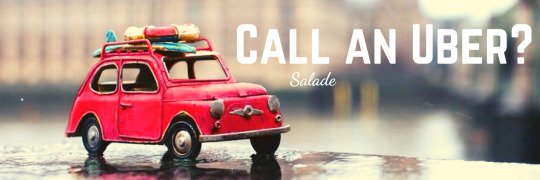
BTS x Reader | idolverse au, uber driver!Reader, translator!Reader | Fluff, flirting, super slow burn, angst and hurt/comfort, mature themes and eventual smut
Summary: Your normal life with a normal, yet inconsistent job gets drastically changed when your dreams come true. Sounds boring right?
What happens when all of this occurs, but you’re still doing something you love AND getting a large sum for it? Now there’s something to think about, and it’s definitely not what you’re thinking.
Warnings: None
Word Count: 2.4k
< masterpost >
»»————- <<prev | next >> ————-««
“Uh, no you don’t.”
I gasped when the phone was suddenly plucked from my hands. It had been a struggle to find a close-by Uber service, but one had honestly just popped up!
“Bang PD-nim?”
The older man chuckled and returned the phone to my trembling hands. When had he even appeared next to me? He was dressed so casually that I had to look twice to make sure it was even him.
“I can drop you home for a lot less, trust me (Y/n).” He laughed again, and it was obvious I had no choice but to follow him speechlessly. A week or so ago, this would have appeared as quite strange and inappropriate to many people, but I knew the stout CEO well enough now to place my trust in him.
“T-thank you so much, you really don’t have to…” I spluttered and gawked when his expensive car came into view. The reason why he’d even come along to the concert was still unknown. Up until this point, I’d been under the impression he usually didn't get involved with the showy stage side of things, but even so, he had obviously come of his own accord.
“It’s fine. After everything you’ve done for us tonight, it’s the least I can do.” Bang PD sighed, and I knew he was thinking about Soojin’s brashness from earlier in the day.
“That’s completely okay, I really enjoyed myself tonight,” I said calmly, thinking hard about what I was about to suggest. “Actually, I wouldn’t mind helping out like this more often. If they ever need anyone, that is.”
Bang PD smirked at me, and I knew he was teasing at the underlying feelings I had for the members in particular. The fact that I was already missing them and it hadn’t even been an hour said quite enough. There was no denying that it did play a big role in my offer, but it wasn’t everything of course.
“I can think of a few reasons why, but unfortunately it’s not in your job description.”
I laughed and exhaled in slight disappointment, my shoulders sagging in defeat. “I know, it’s only if they need someone though.”
The car ride was silent for a few minutes, and we would be reaching my house soon after seeing how fast his flashy car zipped around the streets and backroads of Seoul.
“I have something serious to say to you, (Y/n).”
I immediately grew apprehensive at his tone. I mean who wouldn’t after hearing something like that? I picked at the leather seat underneath me and willed my eyes to not drift towards the scenery rocketing past the window. I needed to show him my full attention here.
“I came tonight for one reason only, and that was to monitor you.”
Back at it again with the bluntness it seemed. Classic Bang PD.
“Monitoring me? That sounds kind of sinister.” I pursed my lips and trained my gaze onto the man’s bespectacled face. He wasn’t looking back, but it wasn’t as if I expected him to while he was driving anyway. I was, on the contrary, glad to not be confronted with his piercing eyes, because the anxiety about the direction this conversation had taken would have surely consumed me whole.
“It’s not that bad,” he said while chuckling, “I just wanted to check up and see how you were doing, but you never saw me backstage. Heaven forbid Soojin-ssi actually informed you of anything properly. I had an opening in my schedule, and I hadn’t visited the concerts for a while.”
I shook my head and laughed along with him. He knew exactly of his assistant’s behaviour, and it seemed he definitely wasn’t the only one. This wasn’t the outcome I was expecting, but I felt appreciative of his caring nature, nonetheless.
“What I noticed…” he then drew out, and a sense of uneasiness fell onto us both.
“Was your relationship with Bangtan themselves.”
Now the hammer dropped. Horror lit up like a wildfire inside me, and I suddenly thought about all my interactions with the boys so far. Dazed eyes scanned the disappearing road in front of me as the cogs within my mind started breaking to pieces. A simple touch could be considered crossing the line with them. I was only a mere staff member, therefore I couldn’t expect anything more or less than simply that, but thinking about it now reminded me that I definitely had not been acting like it.
I must have gone too far. Hell, I literally hugged two of them tonight! That’s a recipe for scandal disaster right there, what the fuck (Y/n).
“I can see your brain working, please don’t overthink about what I just said,” Bang PD’s tone became louder as if trying to speak over the flurry of thoughts. I couldn’t help but swallow thickly and sat back into the plush car seat behind me. I rubbed the clamminess off my palms and steeled myself to hear whatever he had to say next.
“Sorry PD-nim, I know I’ve been…closer than I need to be, I guess.”
He suddenly let out a wheeze of a laugh, and I wished to open some kind of window into his mind just to understand what was happening. He took one glance at my furrowed brows and stifled another laugh.
“No way (Y/n), I wasn’t going to say it was a bad thing at all! Well, hear me out please. I want to be serious for a minute.”
I let out a bellowing sigh of relief and managed to let any amusement die down. If he wanted to be this serious, it meant that something extremely important needed to be understood.
“The boys are solely focused on their idol careers, so when it comes to hiring new staff we try to avoid potential ‘risks’, so to speak. It’s a precautionary thing, but – you don’t have to concern yourself with that notion, because you’ve managed to prove yourself again and again. (Y/n), you’ve been working with us for only a few weeks now, but you’ve only solidified my opinions.”
I was smiling now, because the man’s words were so heartfelt and honest. I wondered straight away if he was about to open up to me somehow. This didn’t usually happen, right? Or maybe it did, because he just liked being a boss that staff members could be comfortable and adaptable with.
“You have the best of intentions, I know this for sure, but that isn’t the problem,” he continued while gaining a more solemn tone, “The issue itself, is attachment.”
Another hammer, ah yes. I should have seen this one coming from a mile away.
“Now, I don’t have a problem with you and the boys getting along well. Many of the staff are close with them, and it’s not something out of the ordinary because there are so many faculty members that have been with us from the beginning. It’s only natural.”
When he turned to gauge my response from over the rim of his glasses, I found myself nodding in earnest understanding. I completely agreed with what he was saying, because there was no way you wouldn’t form a substantial bond with the very people who had helped you rise to the top. I couldn’t quite put my finger on what the man was trying to get at exactly, though.
“You-”
He stopped and cleared his throat loudly, obviously racking his brain for the right words to use. It left me dumbfounded, because Bang PD had always come right out with whatever was on his mind. Sometimes it was a little too harsh, but most people valued his opinions and appreciated his level of honesty whether it hurt them or not. This industry did teach their employees to deal with no-nonsense attitudes.
“Not including the backstage crew at the venue, you have been one of the youngest staff members we’ve hired in a while.” He finally sighed, and my mind created the imaginary train tracks steering straight to the point.
“I’m not fearing the attachment you may develop if you continue to spend time with them, but I do fear things going awry or their focuses being taken away from their careers. Usually, I would remove you from the situation without question right away, but I saw you with them tonight-”
I flooded with sudden embarrassment when he looked upwards to think again, as that meant he had most likely seen the hugging too. There was a cold dread settling into my stomach at the thought of getting ‘removed’. That would mean the cost of my job and everything I had worked for so far. I would feel empty, because now that the boys were in my life, I didn’t want them to just vanish.
Oh God, why had I let myself get attached already??
“I understand, actually,” I murmured, “and it would probably be for the best if I didn’t see them as much.” I managed to force it out through half gritted teeth. It really did hurt me to say, but I could see that it was the best option. Who knew what hardships would come later if I continued the way I was going?
“That’s not what I’m saying, I said I saw you with them tonight, but I didn’t mean it in a bad way.” Bang PD started to slow down the car, and I knew we had finally reached the entrance to the carpark of my apartment building.
At his statement, I couldn’t help but feel confusion tickling the edges of my mind. The founder of Bighit shifted sideways in his seat to give me his full attention. Now, he could finally focus without having to divert his thoughts to not crashing and killing us both.
“They were nervous wrecks before the concert started. And I know this because I went in there just before you arrived to have a chat with them all. I could tell that Namjoon-ah would be just fine, and they all would’ve been in the end, but seeing the members like that is never comforting.”
I was fully enraptured by the man’s words, because I had never heard him speak with such a deep and sympathetic tone before. I speculated on when he had last talked to somebody like this.
“There wasn’t much I could do. I’ve supported them through the years, and they know they can always confide in me if they ever need to,” he continued while nodding forlornly. “But when it comes down to live events like these, there’s only so much I can say to help them out. And I'm rarely around as it is.”
The sudden silence urged me to convey my thoughts on the matter. “It’s nearly impossible to get rid of the nerves and doubts once they’re there anyway,” I spoke softly, eyes distant as I fiddled with my own hands uneasily. The atmosphere was more disconcerting than ever now that we had managed to find the time to stop and think.
“That’s what I thought too, but then you came in.” Bang PD chuckled and started tapping his fingers on his leather lined steering wheel to an imaginative rhythm.
“I literally watched as you made their tension disappear like it was nothing. Many people envy you when it comes to your ability to read a situation like that, because it was like you knew exactly what to do, and I’m sure they appreciated it more than you know.”
I almost choked at his sincerity. I hadn’t seriously done all that much, just held a small conversation before the show had commenced. It was only because one of the stylists had asked me to help out, otherwise I may not have even made contact at that time.
“Really? Thank you so much for saying that,” I dipped my head lightly, because I also wanted to hide the sudden spell of emotions from showing too much.
“Afterwards as well.” He sighed, and I watched him begin to smile with approval. “They were so happy, but you made them even happier in an instant. Jimin-ah too. Anyone who cared to watch could see it.”
At this point, I couldn’t help but laugh in a bizarre mixture of disbelief and amazement. Maybe I had just felt so ecstatic in their presence that I hadn’t even known their behaviour was changing too.
“This isn’t something they’ll likely admit, but I think I have an idea about how they’re feeling.” Bang PD cleared his throat. “You might just be the consolation they need, (Y/n). They have always had each other and their many supportive staff to help them find their footing, but I think you might be the key to keeping them there. To reassure them, using your viewpoint as a fan of sorts.”
He finally stopped to breathe, and my mind was churning once again at the revelation. He wasn’t even finished, and it seemed he had much left to say.
“You’re basically like a spokesperson. I know they wouldn’t have reason to doubt or disregard anything you have to say about them from their music choices to even their stage images. Min Yoongi came to talk with me the other day, telling me all about how he’d found a way to get over a certain stump in lyric writing.”
“Ah, that boy.” I muffled another chuckle and the softest of smirks made its way onto my features. I was honestly so happy to even think about being a positive influence in their lives, it made me glow from the inside out.
“It’s why I’ve made a decision,” Bang PD spoke again, and I recognised the familiar firmness to his tone that usually meant he was about to drop something big.
“Taking into account what I mentioned before about the attachment, I think it could actually help us out instead. As their presence worldwide grows, so will the pressure, and I want someone they’re comfortable with to be there for them as a support.”
“So, that’s me? What will happen? What am I going to have to do exactly?” I stammered, feeling considerably warmed and buzzed with excitement at the producer’s words. Everything he was declaring sounded like a wistful dream to me right now, but to say I also wasn’t feeling the pressure would be a lie.
“Nothing extravagant just yet.” He held up a hand while stifling a chuckle. “But it’s why I’ve decided to involve you in more activities.”
Okay, now the excitement was ready to detonate.
“And that’s why I’m asking you to go along with them on their next tour.”
Copyright © 2020 by salade. All rights reserved.
tagged: @l4life, @joyful-jimin, @gee-nee, @m0chilattae, @rossemayme, @doilooklikeinoe
#bts x reader#bts scenarios#bts imagines#bts#bts fluff#bts angst#bts crack#bts smut#bts fanfiction#bts fanfic#kim namjoon#park jimin#jeon jungkook#kim seokjin#kim taehyung#jung hoseok#min yoongi#ot7#reader insert#salade-tb#call an uber?
122 notes
·
View notes
Photo
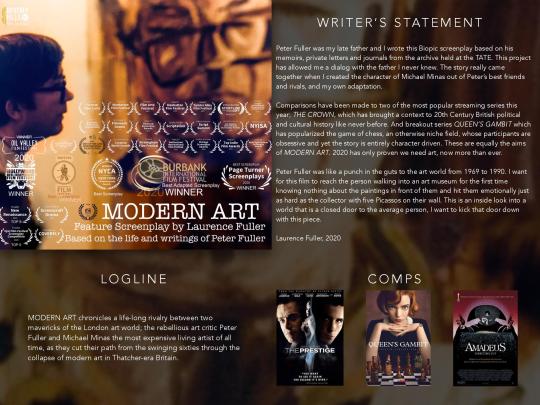
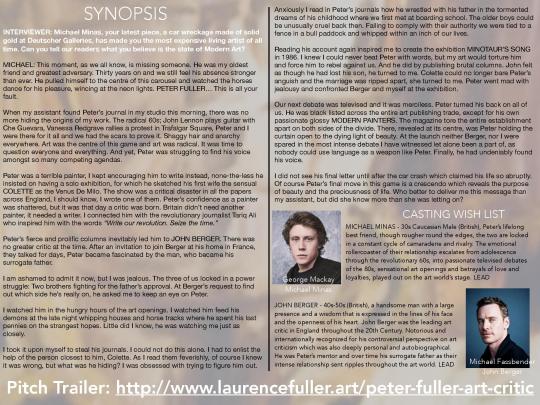
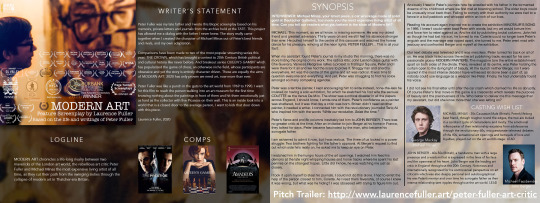
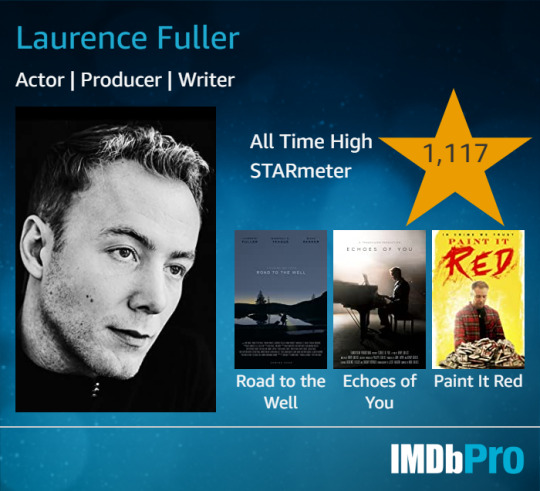


MODERN ART chronicles a life-long rivalry between two mavericks of the London art world; the rebellious art critic Peter Fuller and Michael Minas the most expensive living artist of all time, as they cut their path from the swinging sixties through the collapse of modern art in Thatcher-era Britain.
WRITER’S STATEMENT Peter Fuller was my late father and I wrote this Biopic screenplay based on his memoirs, private letters and journals from the archive held at the TATE. This project has allowed me a dialog with the father I never knew. The story really came together when I created the character of Michael Minas out of Peter’s best friends and rivals, and my own adaptation. Comparisons have been made to two of the most popular streaming series this year; THE CROWN, which has brought a context to 20th Century British political and cultural history like never before. And breakout series QUEEN’S GAMBIT which has popularized the game of chess, an otherwise niche field, whose participants are obsessive and yet the story is entirely character driven. These are equally the aims of MODERN ART. 2020 has only proven we need art, now more than ever. Peter Fuller was like a punch in the guts to the art world from 1969 to 1990. I want for this film to reach the person walking into an art museum for the first time knowing nothing about the paintings in front of them and hit them emotionally just as hard as the collector with five Picassos on their wall. This is an inside look into a world that is a closed door to the average person, I want to kick that door down with this piece. Laurence Fuller, 2020
SYNOPSIS INTERVIEWER: Michael Minas, your latest piece, a car wreckage made of solid gold at Deutscher Galleries, has made you the most expensive living artist of all time. Can you tell our readers what you believe is the state of Modern Art? MICHAEL: This moment, as we all know, is missing someone. He was my oldest friend and greatest adversary. Thirty years on and we still feel his absence stronger than ever. He pulled himself to the centre of this carousel and watched the horses dance for his pleasure, wincing at the neon lights. PETER FULLER… This is all your fault. When my assistant found Peter’s journal in my studio this morning, there was no more hiding the origins of my work. The radical 60s; John Lennon plays guitar with Che Guevara, Vanessa Redgrave rallies a protest in Trafalgar Square, Peter and I were there for it all and we had the scars to prove it. Shaggy hair and anarchy everywhere. Art was the centre of this game and art was radical. It was time to question everyone and everything. And yet, Peter was struggling to find his voice amongst so many competing agendas. Peter was a terrible painter, I kept encouraging him to write instead, none-the-less he insisted on having a solo exhibition, for which he sketched his first wife the sensual COLETTE as the Venus De Milo. The show was a critical disaster in all the papers across England, I should know, I wrote one of them. Peter’s confidence as a painter was shattered, but it was that day a critic was born. Britain didn’t need another painter, it needed a writer. I connected him with the revolutionary journalist Tariq Ali who inspired him with the words “Write our revolution. Seize the time.” Peter’s fierce and prolific columns inevitably led him to JOHN BERGER. There was no greater critic at the time. After an invitation to join Berger at his home in France, they talked for days, Peter became fascinated by the man, who became his surrogate father. I am ashamed to admit it now, but I was jealous. The three of us locked in a power struggle: Two brothers fighting for the father’s approval. At Berger’s request to find out which side he’s really on, he asked me to keep an eye on Peter. I watched him in the hungry hours of the art openings. I watched him feed his demons at the late night whipping houses and horse tracks where he spent his last pennies on the strangest hopes. Little did I know, he was watching me just as closely. I took it upon myself to steal his journals. I could not do this alone. I had to enlist the help of the person closest to him, Colette. As I read them feverishly, of course I knew it was wrong, but what was he hiding? I was obsessed with trying to figure him out.
Anxiously I read in Peter’s journals how he wrestled with his father in the tormented dreams of his childhood where we first met at boarding school. The older boys could be unusually cruel back then. Failing to comply with their authority we were tied to a fence in a bull paddock and whipped within an inch of our lives. Reading his account again inspired me to create the exhibition MINOTAUR’S SONG in 1986. I knew I could never beat Peter with words, but my art would torture him and force him to rebel against us. And he did by publishing brutal columns. John felt as though he had lost his son, he turned to me. Colette could no longer bare Peter’s anguish and the marriage was ripped apart, she turned to me. Peter went mad with jealousy and confronted Berger and myself at the exhibition. Our next debate was televised and it was merciless. Peter turned his back on all of us. He was black listed across the entire art publishing trade, except for his own passionate glossy MODERN PAINTERS. The magazine tore the entire establishment apart on both sides of the divide. There, revealed at its centre, was Peter holding the curtain open to the dying light of beauty. At the launch neither Berger, nor I were spared in the most intense debate I have witnessed let alone been a part of, as nobody could use language as a weapon like Peter. Finally, he had undeniably found his voice. I did not see his final letter until after the car crash which claimed his life so abruptly. Of course Peter’s final move in this game is a crescendo which reveals the purpose of beauty and the preciousness of life. Who better to deliver me this message than my assistant, but did she know more than she was letting on? George Mackay Michael Minas MICHAEL MINAS - 30s Caucasian Male (British), Peter’s lifelong best friend, though rougher round the edges, the two are locked in a constant cycle of camaraderie and rivalry. The emotional rollercoaster of their relationship escalates from adolescence through the revolutionary 60s, into passionate televised debates of the 80s, sensational art openings and betrayals of love and loyalties, played out on the art world’s stage. LEAD JOHN BERGER - 40s-50s (British), a handsome man with a large presence and a wisdom that is expressed in the lines of his face and the openness of his heart. John Berger was the leading art critic in England throughout the 20th Century. Notorious and internationally recognized for his controversial perspective on art criticism which was also deeply personal and autobiographical. He was Peter’s mentor and over time his surrogate father as their intense relationship sent ripples throughout the art world. LEAD
Modern Art Script Trailer
vimeo
2 notes
·
View notes
Text
Ranking : The Coen Brothers (1954/1957 - present)
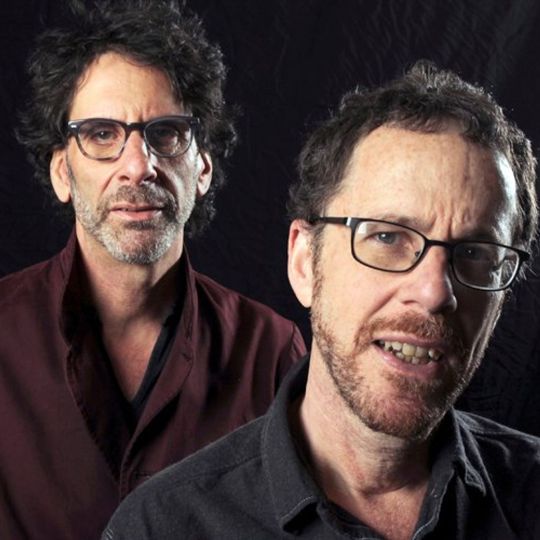
Directing a film can be one of the most vast, task oriented and stress inducing undertakings imaginable, which makes it odd that more directing duos, specifically sibling duos, do not exist. Sibling duos like the Wachowskis, Hughes, Farrellys, Safdies and even the Zellners have made names for themselves, but one set of siblings easily towers above the rest : the Coen brothers. With nearly 20 films under their belt, and nearly as many stylistic varieties and storytelling approaches found within, it is hard to argue the impression they have left on moviegoers worldwide over the past nearly four decades they’ve existed professionally. With such a stellar record of films under their collective belts, I’ve decided to do the most stress-inducing task of all : rank these films from least to most favorite.
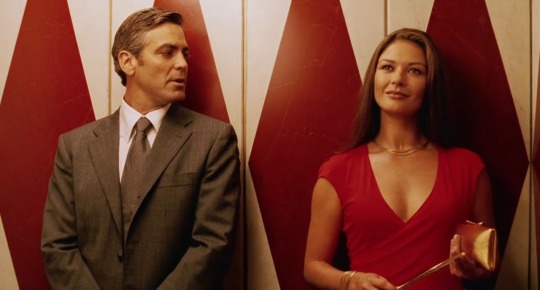
18. Intolerable Cruelty (2003)
For a duo with so much distinct style and flair for storytelling, this film feels the least like a Coen Brothers film. If anything, this feels like a script that sat on a shelf in pre-development hell, possibly for years, only for someone considering themselves a bit of a ‘maverick’ or ‘forward thinker’ to discover it and think that a dose of Coen Brothers magic could save it. Even with the star power of George Clooney and Catherine Zeta-Jones behind it, this one feels a bit too ‘by the numbers’ to stand out from an oeuvre that nears perfection.
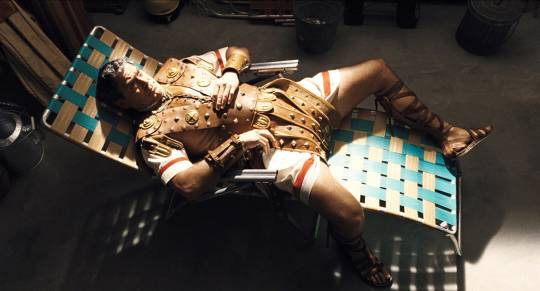
17. Hail, Caesar! (2016)
I’ll be completely honest with you all... I don’t remember much about this film. I remember enjoying it, but I don’t remember being blown away by it. I remember enjoying the colorful display of old Hollywood, and it’s always refreshing to see George Clooney lean into roles that border upon slapstick. For as much as I found this film not all that memorable, however, it stands above Intolerable Cruelty simply because it does not trigger bad memories.
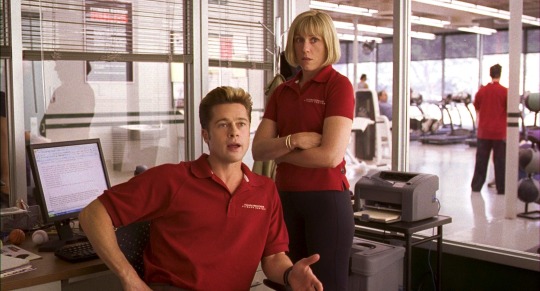
16. Burn After Reading (2008)
This film is what Intolerable Cruelty wanted to be... a property that is a hair closer to by the books, but full of a screwball approach that heralds to a forgotten era of film while using an incredibly stacked cast. Of all the Coen Brothers films I’ve seen, Burn After Reading feels like the property that all involved enjoyed making the most. Like many of the Coen Brothers films, the cast on this one is mega-stacked, and from top to bottom, everyone involved shines in roles that go against their standard types, or amplify the most off-beat aspects of their performing ability.
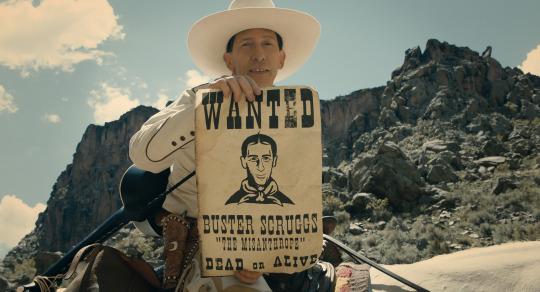
15. The Ballad of Buster Scruggs (2018)
The fact that Netflix was able to pull the Coen Brothers for a film is a win in itself, and with the duo choosing to do an anthology piece, Netflix was primed to maximize on their investment. While highly entertaining, however, the anthology nature of the property leaves it feeling a bit unfocused and disjointed at times... none of these stories really had enough meat on the bone to be expanded into feature-length films of their own, but for some reason, all parties involved passed on the opportunity to make a multi-episode serial rather than a film comprised of multiple tales. While using variance in storytelling methods and visual styles may work for some less talented directors, in the case of The Ballad of Buster Scruggs, it feels more like snack-sized bites in the place of true sustenance.
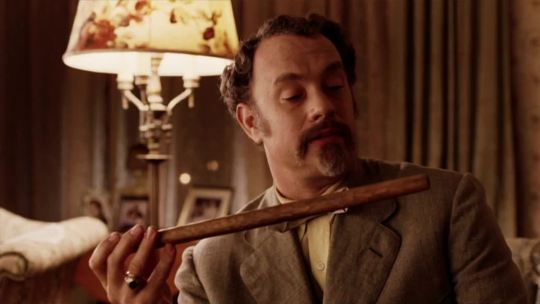
14. The Ladykillers (2004)
On paper, this film should have been a disaster. The Coen Brothers generally opt for original stories, so the fact that they chose to adapt such an obscure 1950s property for the modern day was strange, especially in light of the fact that most every element with the exception of Tom Hanks’ character was given a modern update. Somehow, despite all of this oddness, The Ladykillers managed to capture a sense of the classic Coen Brothers slapstick comedy that they famously established themselves with early on in their career. Tom Hanks is given the green light to go completely ridiculous, and to much of the viewers’ delight, he does so with great aplomb. His supporting cast shines, the comedic turn brings new energy to the story, and the southern gospel setting brings a rich sense of spirituality to an otherwise run of the mill film.
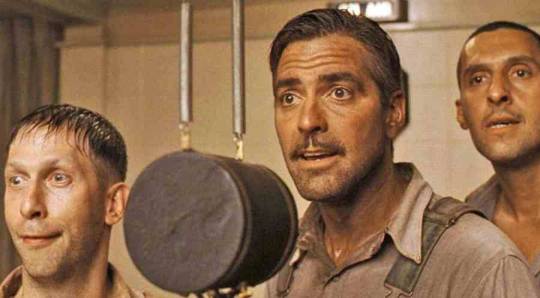
13. O Brother, Where Art Thou? (2000)
The Coen Brothers were essentially household names by the turn of the 20th century, but O Brother, Where Art Thou? propelled them into a legendary status. The grassroots mix of The Odyssey and the Robert Johnson crossroads legend took on a life of its own, leaving behind a soundtrack that birthed an entire generation of folk and bluegrass enthusiasts, as well as a film that showed the world George Clooney’s comedic chops. Much like The Ladykillers, O Brother puts viewers deep into the unfamiliar territory of Southern ‘discomfort’, with the African-American experience playing a major role in the narrative. Of all the Coen Brothers films one could use to introduce a stranger to their catalog, this one may be the best, as its infectious nature and stunning look leaves an impression on most anyone who has the pleasure to view it.
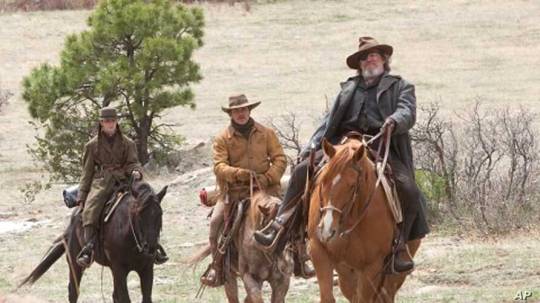
12. True Grit (2010)
The Coen Brothers had already covered a wide bit of genre ground within their first three decades, but surprisingly, they’d not done a true western up to that point (though many argue that No Country For Old Men is a modern take on the western). Therefore, when it was announced that their first western would be a remake of the iconic John Wayne film True Grit, many were surprised, and curious if they could pull it off. Not only did they pull it off, but in my humble opinion, they made a version that more than holds its own against the original. For the handful of big name and seasoned actors that signed on, it was the breakthrough performance of relative newcomer Hailee Steinfeld that outshined all. While The Ballad of Buster Scruggs was a fun revisit to the world of the western, True Grit was the kind of achievement that makes me want more traditional westerns from the duo.
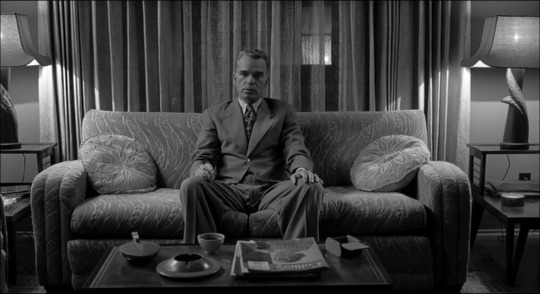
11. The Man Who Wasn’t There (2001)
Listing the Coen Brothers films is by far the most difficult ranking I’ve done to date, and the first film that really gave me trouble in terms of placement was The Man Who Wasn’t There. Personally, I find this film to be captivating and nearly flawless... Billy Bob Thornton’s detachment is rich and intrusive, which makes it all the more sinister when he does choose to exude even a hint of passion about something, be it positive or negative. The black and white photography, in league with the tone of the film, puts me in the mindset of films like In Cold Blood, and some of the sequences in the film stand out as some of the most iconic in the world of Coen Brothers films, especially the car crash. For a classic-style film noir, a genre that anyone with half a brain knew was a slam dunk for the Coens, the duo went above and beyond to both modernize and wholly embody the style. One of several Coen Brothers films that sits with you long after the final credits have faded away.
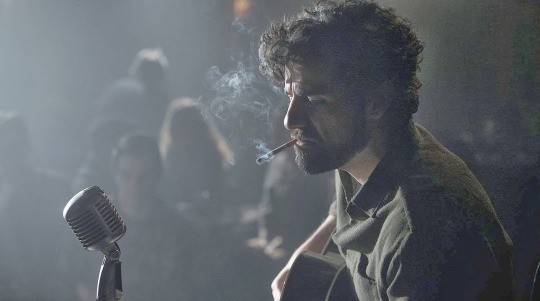
10. Inside Llewyn Davis (2013)
If this isn’t the darkest comedy in the Coen collection, it’s certainly giving the number one contender a run for its money. The intimacy of this film is unmatched within the broader collection of Coen characters, excluding The Dude, but the difference between Llewyn and The Dude is the personality equivalent of the difference between oil and water. You may marvel at Llewyn’s talent, but all the while, the film is screaming at you that “THIS IS A CHARACTER YOU SHOULD NOT ROOT FOR”. The symbolism found in the film is minimal while being incredibly effective in how it punctuates Llewyn’s personality and character, and the story structure is an equally subtle swerve that baits you into paying deeper attention, only to realize that the setup was the punchline the entire time.
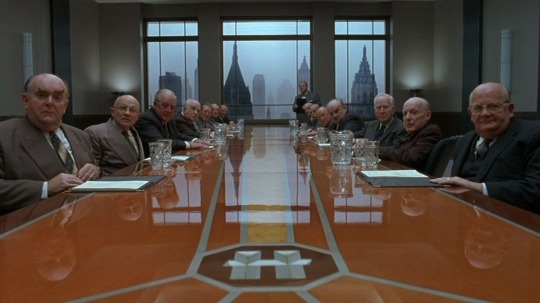
9. The Hudsucker Proxy (1994)
I’m a sucker for a Coen Brothers comedy, especially the ones that play like human cartoons, and one of their absolute best was The Hudsucker Proxy. The writing on this film is so tight that it would absolutely pop if it were any tighter. The entire A Christmas Carol-esque approach to the story makes it a wonderful moralistic tale that makes people laugh so much that they often don’t realize they are being taught a lesson about morals, integrity and self-respect. Tons of familiar character actors fill the frames, everyone tasked with supporting roles fit firmly and comfortably into the created world, and the man trio of Tim Robbins, Jennifer Jason Leigh and Paul Newman are functioning on genius levels of performance... especially Jennifer Jason Leigh. While not quite a holiday movie, there is enough of a holiday sense that it could be shoehorned into a seasonal viewing, but any time set aside for this gem is the right time to watch it.
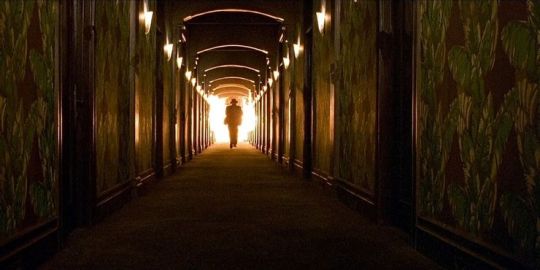
8. Barton Fink (1991)
In my humble opinion, this may be the strongest end to end performance from John Turturro in his long and storied career. As clear-cut fans of film, it is always a pleasure to see the Coen Brothers explore the world of film, and by using this approach, they are able to tell a bold, brash and haunting tale about the issues that come with assumptions about character and talent. The takes on Hollywood and the indifference of those in power, especially when it comes to assisting young and promising talents that may one day usurp them, and powerful. The real bow on the story, however, is the larger than life presence of John Goodman, who goes from being a slightly aggressive and overbearing sense of support to a literal madman by both name and action. For a film that mainly consists of individuals talking to one another about passion, talent and secrets, there is a kinetic energy that feeds the forward momentum of this movie, and for that, it stands out in the Coen collection.
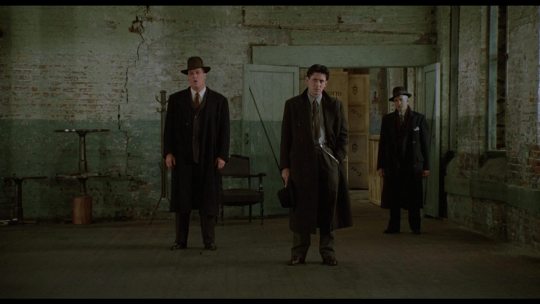
7. Miller’s Crossing (1990)
It’s not surprising that the Coen Brothers could make a compelling and memorable gangster film, but I don’t think that anyone expected a film as vicious and dark as Miller’s Crossing. For a duo that generally relies on nuance and contemplation to get their points across, this film certainly proves that they are more than capable of excelling in the direct approach as well. The era-specific costuming is outstanding, the murky city areas stand in stark contrast to the woods of the titular Miller’s Crossing, and the sheer volume of bullets are a stark reminder of the Prohibition-era story we are viewing. Gabriel Byrne shines in his lead role, bringing a world of fury, deceit and mistrust in tow with him. The iconic hat blowing in the wind serves as not only the biggest memorable moment from the film, but possibly also the single moment of peace and beauty found in a film that holds up a dirty mirror to a dark world.
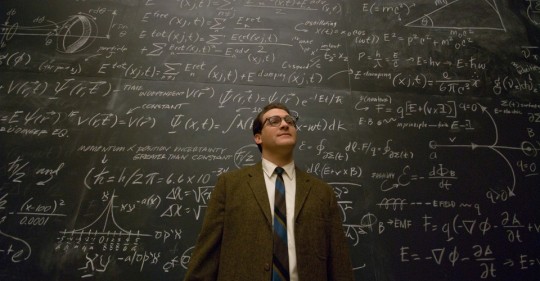
6. A Serious Man (2009)
Of all Coen Brothers films, this is easily the most underappreciated and slept on of the bunch. I’m a sucker for movies that embrace Murphy’s Law, and when mixed with the parable nature of the Book of Job, we are presented with a darkly comic and relatively unique version of the hero’s journey. The way that the personal, professional and philosophical problems pile up on Michael Stuhlbarg’s Larry are meant to be felt by the audience, and the way that his bad luck boomerangs out into the world during the film’s resolution must be seen in order to be believed. The way that destiny and chance dance around one another in this film is narratively breathtaking, and for such a subtle film, it is a truly remarkable achievement.
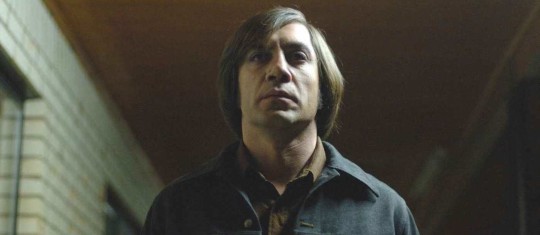
5. No Country For Old Men (2007)
When you think of the Coen Brothers, you don’t necessarily think of evil incarnate, and yet, the duo succeeded in capturing a character in the form of Anton Chigurh, the closest thing to the Terminator that the duo has ever created (to my knowledge). The story is a wonderful, subtle tale of how the times can change into something we don’t recognize before we recognize the change, but it is easily Javier Bardem’s iconic performance that gives this film all of its power and ominous energy. His unyielding forward momentum, his disdain for obstacles in any form, and his disregard for human life are enough to instill real fear into those who partake in viewings, and his presence will more than likely haunt you far beyond completion of the film. A true modern-day masterpiece that would have been higher, if not for...
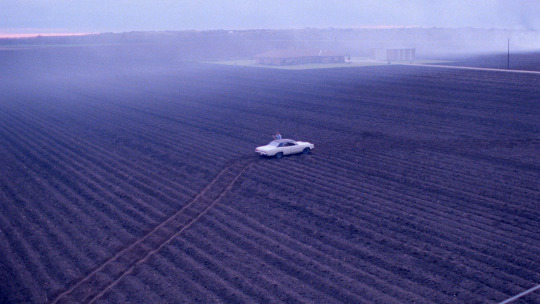
4. Blood Simple (1984)
What a powerful debut, and one that not only hinted at, but outright put the spotlight on the promise of the Coen Brothers when it came to stark visuals and stunning storytelling. For such a simple, small scale story, the tangled web that is woven is a slippery slope of deception and distrust that leaves little to no survivors in its wake. The scale of the film is deceptively small, but the quality shines in every aspect that it can. Seeds are placed that pay off wonderfully, and the color palette presented gives the film the feeling of a Technicolor film-noir. Much like A Serious Man, Blood Simple deserves to be talked about and held up much more than it is by fans of film.
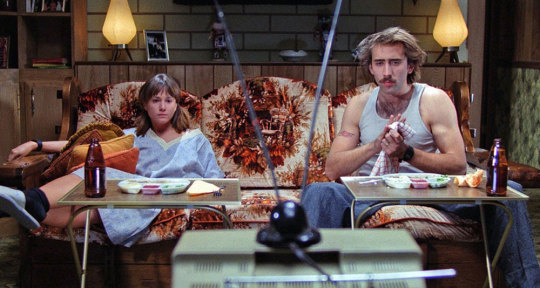
3. Raising Arizona (1987)
What a wonderfully ridiculous movie about something as simple as the trials and tribulations of navigating love, marriage and parenthood. The most hilarious aspect of this film, in my opinion, is how it feels like a living and breathing cartoon, both in terms of the character performances and the outrageous events that take place within the world of the film. Nicolas Cage is operating on a completely different level, Holly Hunter is equal parts charming and hilarious, Trey Wilson is wonderfully over the top, John Goodman and William Forsythe bring excess hilarity to the wild proceedings, and Randall “Tex” Cobb is downright iconic in terms of his ridiculous character. The pacing of the film is breakneck and feverish, the comedy hits never stop coming, and the utter charm emanating from the midst of the caper presented is infectious. As a second film, this could not be any more different than Blood Simple, and yet somehow, it connected so vividly with viewers that it remains a must-watch film to this day.
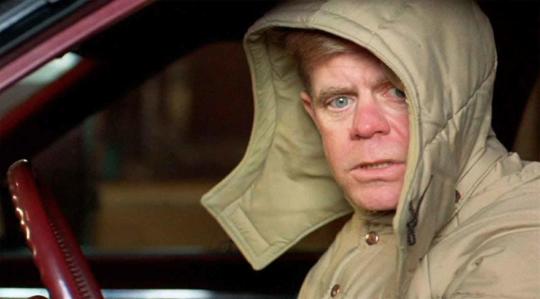
2. Fargo (1996)
What is there to be said about Fargo that has not already been said? For a duo with more iconic films to their name than some directors have completed films, Fargo was an immediate signal that the limits of the Coen Brothers’ creativity and skill had not even began to show its full breadth. Within less than five years of release, the film was already heralded as a classic (of all-time, not just modern day), the mystery surrounding its possibility of being based on a true story built a world of intrigue around the movie, and it has gone on to create a universe of its own in the form of an FX TV show that recently wrapped its fourth season. There is not a wasted role in this film, and to this day, any movie fan worth their salt will happily bust out their version of a Minnesota accent that is almost certainly based on one of the many memorable characters that inhabit the world of Fargo. Numerous actors, including William H. Macy, Frances McDormand and Steve Buscemi, all found breakout success in the wake of this wonderful film.
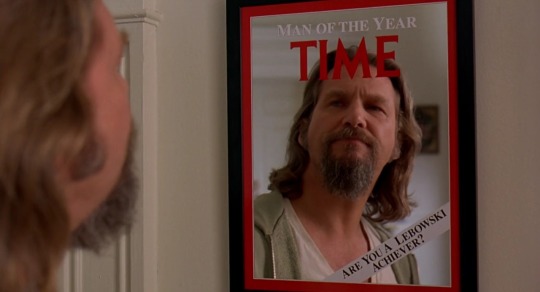
1. The Big Lebowski (1998)
Was there ever any doubt for this placement? For everything that Fargo did in terms of success within the world of the film industry, The Big Lebowski did that and more for the worlds of the counter-culture and cult film fans. The story we are presented with is so simple, yet so ridiculous in its journey, that it almost insists on viewers revisiting it over and over. Like many Coen Brothers films, nobody cast in the film is wasted or misused, and due to these stellar performances, the film finds itself as one of the most quotable in recent memory. Much like the performances of the cast, the writing does not waste any words or opportunities, often referring back to itself in extremely subtle and nuanced ways that present themselves over time, and to hilarious effect. Nobody would have expected a film of this nature to have a fandom, and yet, the legions of fans for this film are unique to that of the Coen Brothers catalog in the sense of their dedication, devotion to and love of the movie. While not everyone’s cup of tea upon first viewing, The Big Lebowski is truly an example of the gift that keeps on giving.
If the Coen Brothers never make another film, they’ve already created and achieved more in their journey that most filmmakers can dream of. Many of their films could honestly be considered works of art, and nearly all of them are compelling with an ability to leave deep and lasting impressions. If you are unfamiliar with the Coen Brothers, do yourself a favor and check out their work, as it may bring a new sense of invigoration to your love of film.
Editor’s Note (12/10/2020) : Inside Llewyn Davis added to the number 10 position, all films ranked lower adjusted accordingly.
#ChiefDoomsday#DOOMonFILM#JoelCoen#EthanCoen#CoenBrothers#BloodSimple#RaisingArizona#MillersCrossing#BartonFink#TheHudsuckerProxy#Fargo#TheBigLebowski#OBrotherWhereArtThou#TheManWhoWasntThere#IntolerableCruelty#TheLadykillers#NoCountryForOldMen#BurnAfterReading#ASeriousMan#TrueGrit#InsideLlewynDavis#HailCaesar#TheBalladOfBusterScruggs
4 notes
·
View notes
Text
Iris Publishers - Current Trends in Clinical & Medical Sciences (CTCMS)
Can Emergency Medicine Become Redundant?
Authored by Andrew Hague

Injury and illness
Injury and illness are the two medical problems. Injury can be sudden and requires emergency treatment. Illness is incremental and treated progressively.
Doctors are role models
Much work is done to prevent illness. We see this in better hygiene, personal and social; washing hands and sanitation. Lifestyle affects health and people are advised on diet and exercise. The equivalent advice from doctors about emergencies and injuries is missing. In all societies, doctors are role models. We all grew up thankful for the attention of a doctor at some stage. They brought us into this life and will see us out. Seldom do they pronounce on politics and although they have a good income are never seen as having more than their fair share of wealth. People respect doctors and this status should be used by doctors to influence behaviour. Doctors, whether they like it or not, are role models. What they say, is influential.
Causes of injury
There are four classes of causes of injury:
4. Misfortune
From the first of carelessness to the last of misfortune, the chance of avoiding disaster gets less which means that a doctor has less influence. Nevertheless, statements by doctors will be heeded and when it is understood that the doctor invites redundancy this advice will be respected. We wish for the same from the police and fire brigades. Indeed, the fire service devotes a lot of effort to inspecting buildings for fire safety. Do the police invest time preventing crime or is that left to the deterrent effect of sentencing and punishment? In many cases, it is hoped that people will be careful to avoid injury but still they turn up at the A&E in pain and talking about accidents. Investigators admit that the truth is there are no accidents, only mistakes that were avoidable.
Consequences
A child has no concept of consequences. Over time, by trial and error coupled to imitation, the process of conditioning adds to the memory bank and the child becomes an adult aware of the consequences of their actions. People who have not acquired this knowledge should be recognized by doctors for their ignorance which will become evident in frequent visits to the clinic. Their teachers will have already identified these people at school as slow learners. It is in these encounters that doctors have a role to play. Interestingly, the accident prone are not always those scoring low in education. There are many explanations for mistakes. The person who does nothing may stay safe but achieve nothing and the ambitious may push the boundaries of sense to explore beyond. This is the consequence of having the brain we acquired when we mutated into homo sapiens.
Carelessness
There is an assumption that tidiness is safer than a mess. Do more accidents happen in a messy or tidy workplace? I do not know but from my own experience and this includes owning a factory for many years, a mess is not the cause of mistakes and tripping over wires. Where there are obvious dangers, people are alert and avoid them. When there is deceptive safety, one’s attention can wander letting the day dreamer trip or walk into a half open door. Our brains are not born to cope with neatness. The cave and the jungle floor are always a tangle and walking depend on watching where to put your feet for every step. Only since manufacturing required orderliness has a clear path become essential. This allows carelessness.
There is the often-quoted story of two mountaineers trying to find their way to the Royal Geographical Society through the back streets of London. These men had climbed the world’s mountains and then one of them tripped over the kerb when crossing the road in London and broke his leg. As a doctor, what can you advise to prevent such mishaps? Obviously, the fellow was safer on Mount Everest than the paved streets of London.
I visit many countries and complain when I cannot drink the tap water and walk at ease in the towns because of the holes in the pavements. However, I do admit that the locals never seem to fall on those pavements and neither did I; I had to watch where I was going. Carelessness is thus a response to a deceptively safe situation. Add some dangers, as our cavemen-forebears expected, and there should be fewer accidents. Modern manufacturing which is as automated as possible has reduced the chances of injury. Earlier methods often allowed the operator to injure themselves.
Working a fly press involves placing the component under the press tool and swinging the handle to bring the tool down with a load of anything from 5 to 50 tons. Repeating this cycle ten times a minute creates a rhythm of complacency. When the left hand moves before the right hand instead of the other way around, the hand can be under the press with disastrous consequences. Later improvements were to install guards; the guard came down before the press. That resulted in some cases of the guard trapping the hand preventing it being withdrawn from danger. The operator had to wait a second, which can be a long time in these circumstances, for their hand to be amputated in one blow.
Eventually, designers arranged for the descent of the press to be controlled by two buttons, one a shoulder’s width away from the other so that both hands had to be on a button before and whilst the press came down. The release of one button would stop the descent of the press and interrupt the cycle. Automatic pick and place machines have mostly replaced human press loading and it is only where labour costs are so low that investment in automation cannot be justified that workers are exposed to dangers. Automation is criticized for creating unemployment.
It increases productivity and safety. Only the setter, the person setting the tools under the press, is in danger when preparing a new tool in the production process. As the setting task is not repetitive with each step having to be thought about, the injuries are fewer. Setters were in danger if someone switched on the machine not realizing there was a person at the back or inside. These calamities not only resulted in death but led to claims of manslaughter incriminating the person who switched on the machine and the employer. The answer was for the setter to isolate the machine and withdraw a key to the control box, lock it and keep the key in his pocket so that the machine remained inactive until the setter switched on again.
Recklessness
This is where we remember the story of the boy cycling around the house and as he takes his hands off the handlebars he shouts, “Look Mummy, no hands”. A few minutes later he reappears and shouts, “Look Mummy, no teeth”. Due to his bravado, he had crashed. The same happens driving cars at speed, playing with knives or generally showing off. The need to be reckless, seen more in youth than maturity, is shuffling into pecking order to find a place in the hierarchy of society. Less skill means more crashes and you slip down the scale of ability. Balance a football on your nose and the crowd will cheer. Humans play these games because they position each person where they can best support the tribe.
Modern society does not depend on physical skills. The computer nerd is today’s leader. When a doctor explains to the children at the local school that fooling about is dangerous, some sense may prevail and lead to fewer injuries. Recklessness will persist because the desire to show physical prowess is innate. With education essential for survival today, the clever ones are revered, and this will influence our species as physical strength and agility is less desirable in the gene pool compared to mental ability. All species adapt to the environment or become extinct.
The human environment is changed by our own behaviour and we are these days in the midst of an evolutionary shift. The damage we inflict on the environment causing climate change is expected to lead to our extinction. It certainly will but only if it kills us before we kill ourselves by preventing deaths through extended longevity so that adaptive mutations cease. This is a medical emergency beyond the ability of emergency doctors.
Aggression
Lack of fear and aggression goes together. When a wild dog approaches a group, it will sense the meek one who is afraid and attack. This is enabled by the electrical circuits and magnetic fields by which brains operate and is how humans and animals can relate to each other. As a doctor, you will have learned little about this at medical school and yet it is fundamental to behavioural studies and cancer [1]. Aggression is useful in primitive society when dealing with predators, less so in a civilised society. The military employs soldiers trained as commandos, to operate behind enemy lines and, where necessary, kill with their bare hands. Such a person, who can emerge from an assignment and look unperturbed is almost unknown. When the fictional James Bond peals off his diving suit and walks nonchalantly into the bar for a drink shaken and not stirred, he is nothing more than entertainment. The brain does not work that way. An actor can play the role to the cameras but in real life, the adrenalin and tension involved dominates the soldier and, for many of these people, rehabilitation is difficult.
As a doctor, dealing with the effects of aggression, especially when coupled with alcohol and drugs, is a nightmare. To stop it would amount to eliminating those people programmed to be aggressive. Either they find a role in the security forces and we hope they obey the law, or they become useful to organized crime. The doctor will sense these attributes in a young person. I doubt they can be ameliorated. The only way is to direct that person into a role where they can be useful, and the military is an opportunity.
Misfortune
This is being in the wrong place at the wrong time. There is little a doctor can do to prevent victims being struck by misfortune. Awareness of danger is everywhere. Entertainment media dwells on buildings exploding, cars flying off the road and rolling down the mountain, jumping out of a plane and landing safely in a haystack. I feel that this awareness diminishes the sense of danger rather than creating risk avoidance.
News programs refer to natural disasters. They are not disasters. Avalanches, earthquakes, floods and forest fires are natural phenomena that have occurred since the earth was formed and will continue after our species is extinct. In many cases, they are predictable and thereby avoidable. Modern weather forecasting can give two days’ notice of a cyclone or hurricane, time enough to move people to shelter. Living on the side of a volcano where the soil is fertile is always tempting but the gases rolling down from the crater can be poisonous and when the volcano erupts the lava is destructive. You don’t need to be a doctor or a geologist to warn of such dangers.
This is where the sober, thoughtful advice of a doctor carries a lot of weight. Every community has its danger areas. It may be the high cliffs, a motorway, a mosquito ridden swamp, places where the unsuspecting can get into trouble. Tell the community leaders. They will listen to you. Fences can be erected at the edges of the cliffs and busy road and the swamp can be sprayed to control the mosquitos. Always present a solution to the problem and be sure you have no relationship with the contractor who will carry out the work.
Psychology
Preventing injuries involves more psychology than physical medicine. Psychology still falls within the skills of a doctor. There is little scope for direct action. The best a doctor can do is influence and advise and it is by being a doctor that notice will be taken of your advice. The inevitable conclusion will be that humans are accident prone and seek rather than avoid trouble. The doctor is then expected to repair the injuries just as a garage would fix a car damaged in a crash.
I have left their hyperlinks in place. The extent that the injuries can be traced back to psychological causes differs. Certainly, a disturbed mind leads to suicide and violence and very likely to road crashes. Many years ago, when I was teaching sociology to an adult college class in which we were studying criminology, I proposed a cure that I still believe is the only cure and is in most cases impossible; the cure for criminality is to sentence the criminal to a good home. Here is a murderer. Please love him. The explanations were made by John Bowlby in the 1960s and earlier. His best-read book is Child Care and the Growth of Love [3]. Only by parental love can a child acquire empathy and be able to pass love on to others. These bonds are essential in human groups and exist in all animals. Recent botanical research adds to this insight by finding electrical relationships between plants. A person who grew up unloved can be expected to not fit into society. They will not accept the common rules of behaviour and be unaware of others’ feelings. Without empathy, cruelty is easy. Should this individual become a parent, the children will also lack bonds.
Doctors will recognize these people and their disruptive, often temporary, families. They are crimes and injuries in the making. What can a doctor do to prevent future mishaps? On the face of it, very little. Most doctors work inside a bureaucracy and there will be no scope for interfering in a patient’s private life, for that it is how it will be perceived. In earlier times, religious leaders would step in, but their leadership has given way to the smart phone screen which cannot love, only excite and provoke. Sociologists call it alienation and anomie; being cut off from society and having no feeling of belonging. If this were the lack of vitamins or a virus infecting the blood, a doctor could and would do something. The affected (instead of infected) patient is equally in need of help but seldom is a doctor seen as the person to turn to. Eventually, it will be the police and their aim are to pass to the courts, then prison. Society offers no cure despite knowing the cause and suffering the consequences. If what cures is medicine, then here we need social medicine. I contend that doctors apply medicine. If it is not the police to become involved, at least it will be the emergency doctor stitching up knife wounds.
Even amongst well brought up people there is a range of temperaments from placid to impetuous. Impatience can cause injury. Think of bad driving or pushing in a queue. Does such an irritable person need a tranquilizer? Theoretically, extreme behaviours could be chemically restricted, a technique sure to cause ethical arguments. People self-administer their personality shift with alcohol in one direction and caffeine in the other. I advise against both drugs, but they are popular. Medically there is no safe upper limit for alcohol. Coffee is fully accepted, approved and big business. Politicians create laws, companies lobby politicians and consumers accept laws. I love coffee, its taste and smell, but I read my own senses, and something tells me to be wary; minimize on coffee. Look after the brain for a healthy body. Anything that affects the brain is dangerous. This does not include listening to Beethoven.
I have little sympathy with addiction because I see it as selfinflicted. More compassionate souls feel sorry for those who cannot stop doing something. In the context of injuries, think of speed and racing. The winner is the one who placed their life most at risk. That is stupid but the audience loves it and next time greater risks will be taken. Confined to a racetrack, only the participants get hurt. On the open road, you and I can be hit. I remember a doctor assigned to a Formula One racing team explaining that every bone in their star driver had been broken at least once. Didn’t that put him off? No, he is addicted, and nothing will stop him. At the end of the line, the publicity was increasing the sales of something.
Trauma Infection
The first action on a trauma patient brought into Accident and Emergency on a stretcher, assuming the bleeding has been staunched by the medics, is to treat with a CellSonic VIPP machine to kill all and any infection. The intense pulses will penetrate to catch germs thrust into the wound. Importantly, stem cells of the right type in the right quantity will be delivered in the blood to exactly the right place by the immune system responding to the pulses. The blood will automatically have more oxygen and growth factors to aid healing. All this can be done before the doctor arrives to inspect the patient.
Professor Richard Coombes, an orthopedic surgeon of Charing Cross Hospital in London always said that CellSonic VIPP machines should be standard equipment in all emergency units. After the wounds and bones have been set, use the CellSonic again to kill any infection. This can be instead of antibiotics or allow a much lower dose of antibiotic. The benefit is saving the patient from developing antibacterial resistance and reducing the contamination of local rivers whereby antibiotics travel through the patient and the sewage system to rivers where fish and surrounding land are contaminated.
Conclusion
Doctors can help to reduce the demand for emergency medicine. It requires an extension of their usual skills into the therapy of psychology and social manipulation. Humans have brains which search for change. In the process, they hurt themselves and each other and call upon doctors in an emergency. If a more placid life is desirable, emergencies will be rare but that is not the current trend. Expect more horrors. To read more about this article: https://irispublishers.com/ctcms/fulltext/can-emergency-medicine-become-redundant.ID.000503.php
Indexing List of Iris Publishers: https://medium.com/@irispublishers/what-is-the-indexing-list-of-iris-publishers-4ace353e4eee
Iris publishers google scholar citations: https://scholar.google.co.in/scholar?hl=en&as_sdt=0%2C5&q=irispublishers&btnG=
#Iris Publishers#Iris Publishers LLC#Medical Science Journals#Clinical sciences Open access journals#Current Trends Medical Science#Current Trends Clinical Science
1 note
·
View note
Text
Weekend Top Ten #471
Top Ten Settings for a Stardew Valley Spin-Off
Have you played Stardew Valley? It’s great. It’s this sort of farming sim-cum-RPG where you move into a dilapidated old farm and have to turn it around, selling lots of produce and turning a tidy profit. But as well as tilling soil and milking goats, you also have to mosey on down to the local village, befriend the curious townsfolk, repair the battered old community centre, and eventually settle down and get married. And on top of all that, there’s a really weird Lynchian mystery, with monsters in the mines and wizards and witches and a war between dwarves and some kind of race of shadow-people. It’s bonkers and it’s delightful and it’s incredibly, incredibly dense. It’s like a cross between a casual mobile game and six seasons of a prestige fantasy drama.
However good the game is – and it is very good – I never really got too into it. Possibly because in its structure I see too much of the “just one more turn” ethos of Civilization (time passes in days and you can only save when you go to bed, but every morning new stuff has happened or new crops have grown, so you always want to get up and see); as I’m already in the grips of a crippling addiction to the world’s greatest strategy game, injecting more of the same into my veins is a recipe for disaster. Fortunately, my wife got addicted instead, and since the recent console update, we’ve been able to play together in co-op.
So anyway, the long and the short of it is I’ve been playing it pretty much every night.
Whilst I’ve been playing, I’ve been thinking of ways the game could be expanded. Not necessarily improved, but just sort of… spun off, in wild and exciting new directions. A different flavour of Stardew. New settings, new options, new challenges. Do you remember “total conversions”? When teams of modders or developers would essentially build an entirely new game out of an old game? Happened a lot with the Quake and Half-Life engines back in the day; I think it might even be how Gearbox got started, if I remember rightly. Anyway, how’s about a Stardew Valley total conversion? Something along these lines. It’d be good fun at any rate! So let’s play Stardew Valley…
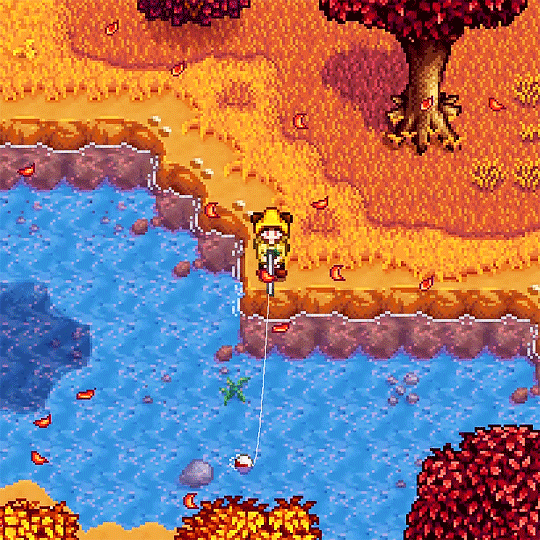
…on Tatooine: you play a moisture farmer with a small place just outside of a bigger town – maybe someplace a bit smaller and friendlier than the likes of Mos Eisley and Mos Espa. You have to install moisture vaporators, buy droids to maintain them, trade with passing Jawas, and fend off Sandpeople attacks (unless you can learn their language and befriend them, Mando-style). Romance townsfolk! Save up enough for a new speeder! Take your T-15 down Beggar’s Canyon to bullseye womp rats! But seriously, the idea of farming in an entirely inhospitable location, and farming in a way that’s not done at all on Earth (except maybe you can also breed whichever animals make the blue milk), is really interesting.
…in the Wild West: you get to be an old-timey rancher out in the West. Are you growing corn? Are you raising cattle? Build yourself a cozy farmhouse. Get one of those windmills going. Basically, you’re creating the Kent Farm in Smallville. Perhaps this could go a bit more serious and look at the relationship between the settlers, townsfolk, and the indigenous people; maybe you could try to get everyone to get along? Or just make it stereotypical and wildly offensive. Godless meets Little House on the Prairie.
…in the Vampire Apocalypse: basically Stardew Valley by way of I Am Legend. There’s no romance here, you’re the only human. During the day you farm, you gather, you build; at night you hunker down as wave after wave of vampires attack. But just like in the book, there’s a deeper, creepier, much sadder mystery to unfold. I mean, this is probably the best possible adaptation you could make of I Am Legend, especially as presenting in a top-down pixel art style would rob it of any sensationalism.
…with Pokémon: you’re always shoving Pokémon in creepy breeding centres in the games, right? Well what if this was basically a Pokémon farm. You have to build specific enclosures for the different Pokémon, make sure they’re well treated, and also grow sufficient crops and foods to keep them happy. Your ultimate aim is to sell the Pokémon themselves (or their produce, I guess) but you can also sell what you grow. And, of course, you can wander into whichever little village in Kanto or Galar or wherever it is we set the game, and have your usual mild RPG entanglements and romantic sub-plots. Meanwhile Team Rocket are trying to mess up your lovely farm. The dastards!
…at the North Pole: kinda similar to the Tatooine farm, this has you managing a remote outpost in the freezing wilderness. Barely anything can grow outside so you have to construct and maintain habitats to farm indoors, and rear animals, etc. You can trade (or romance!) local indigenous people, befriend penguins, and ride polar bears, which I assume is a totally realistic thing to do. On top of all this there could be other research projects to complete and the opportunity to expand the station itself. If you explore far enough, you find a crashed UFO buried in the ice, but whatever you do, don’t let it anywhere near your dog…
…in Yorkshire: basically not much different to Stardew as it exists now, but it’s set in the UK. I think very specifically a small North Yorkshire village. Think of the comedy accents and regional humour! This is the sort of thing Team 17 could have made a lot of headway with in the nineties. You’d be growing and harvesting typical British crops, dealing with eccentric British townsfolk, encountering Sunday bikers and car boot sales and dancing round the May Pole… the more I think about it, the more it should basically be a Wicker Man game, to be honest.
…in Bedrock: farming great big huge caveman crops! Building big rickety stone houses! Driving cars with your feet! And – of course – rearing dinosaurs. Dinosaurs! Think about it: everything would have to be bigger and chunkier and funnier. Maybe you could invent fire or the wheel, or something. Who owns the rights to Chuck Rock? Because if the Flintstone people aren’t on board, this could be a great way to bring back a classic gaming icon.
…during the War: sorta similar to the Yorkshire Farm game above, but specifically set during WWII. I guess this is a more serious sort of game, but the added complications of rationing and a reduced workforce (I think maybe you’d have to hire land girls or something?), making produce for the army and stuff, would add a lot to the gameplay. Perhaps there could be bombing raids, blackouts, and maybe even enemy spies to deal with. All this combined with older technology could be interesting.
…on Cybertron: a totally different way of farming. Imagine: you’re in charge of an energon farm on one of Cybertron’s moons. You have to harvest energon from the ground and then convert it; there could be different energon ores and different ways of converting them. You could also drill for nucleon or something, or rear turbo-rabbits, sharkticons, and scraplets (but don’t let them get loose!). Meanwhile the war is brewing down on the planet below, and eventually you have to decide if you can remain neutral, or if you have to pick a side.
…in the Shire: on the one hand, it’s a fairly straightforward pastoral game, similar to Stardew as it exists now; plant seeds, grow crops, rear animals, do up your farmhouse. But your farm is in the Shire, you’re a hobbit, and everyone else is a hobbit. Grow pipeweed and learn to blow smoke rings! Expand your hobbit hole by digging further into the hill! Go into the Green Dragon and romance the barmaid! You can go adventuring, befriending wizards like Gandalf or Radagast, making friends with dwarves and maybe even meeting elves and men… but if you do, your hobbit neighbours might think a lot less of you. Man, now I really want this game! It sounds fantastic!
So there we are. Ten possible Stardew spin-offs. This started as a fun exercise and ended with me inventing a game that I want more than any other game that exists. This is crazy. Someone make me my gentle hobbit social RPG… please?!
1 note
·
View note